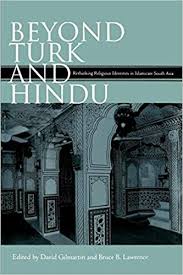 On my other weblog I have a post, On The Instrumental Uses Of Arabic Science, which reflects on the role that the idea of science, the Islamic world, and cultural myopia, play in our deployment of particular historical facts and dynamics. That is, an idea, a concept, does not exist on an island but is embedded in a cultural environment. Several different contexts.
On my other weblog I have a post, On The Instrumental Uses Of Arabic Science, which reflects on the role that the idea of science, the Islamic world, and cultural myopia, play in our deployment of particular historical facts and dynamics. That is, an idea, a concept, does not exist on an island but is embedded in a cultural environment. Several different contexts.
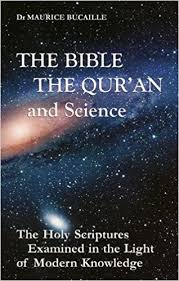 My father is a professional scientist, and a Muslim who lives in the West. In our house there was always a copy of The Bible, the Qu’ran and Science: The Holy Scriptures Examined in the Light of Modern Knowledge. To those not convinced about the beliefs of Islam, as I never was, it was not a convincing book. But it played a particular role in my father’s life of the mind as both a Muslim and a scientist. Its arguments were less important in their detail than that a French scientist had written a book showing that Islam and science were compatible and that in fact, the Koran had prefigured scientific truths.
My father is a professional scientist, and a Muslim who lives in the West. In our house there was always a copy of The Bible, the Qu’ran and Science: The Holy Scriptures Examined in the Light of Modern Knowledge. To those not convinced about the beliefs of Islam, as I never was, it was not a convincing book. But it played a particular role in my father’s life of the mind as both a Muslim and a scientist. Its arguments were less important in their detail than that a French scientist had written a book showing that Islam and science were compatible and that in fact, the Koran had prefigured scientific truths.
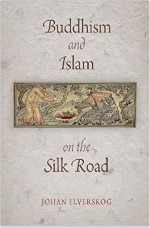 The intellectual achievements of medieval Islam, particularly the phase focused around the House of Wisdom, are a real thing in and of themselves. But more often they exist as tools for the implicit or explicit agendas of particular peoples with ends which are separate and distinct from an understanding of the past on its own terms.
The intellectual achievements of medieval Islam, particularly the phase focused around the House of Wisdom, are a real thing in and of themselves. But more often they exist as tools for the implicit or explicit agendas of particular peoples with ends which are separate and distinct from an understanding of the past on its own terms.
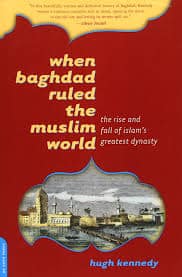 For many Muslims, this period defines what Islam could have been. Should have been. More traditionalist Muslims will have a relatively understated take, and perhaps attribute the passing of this period due to external forces (e.g., the collapse of central authority by the end of the 9th century). More progressive Muslims will make a bolder claim, that Islam, that Muslims, made the wrong decisions internally (al-Ghazali often emerges as a villain).
For many Muslims, this period defines what Islam could have been. Should have been. More traditionalist Muslims will have a relatively understated take, and perhaps attribute the passing of this period due to external forces (e.g., the collapse of central authority by the end of the 9th century). More progressive Muslims will make a bolder claim, that Islam, that Muslims, made the wrong decisions internally (al-Ghazali often emerges as a villain).
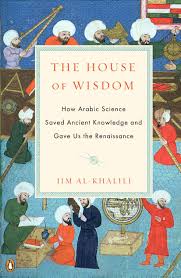 A modernist, perhaps Whiggish, take would be that the 9th century of Islam was a “false dawn.” Illustrative of the acidic power of rationality, but an instance when it receded in the face of faith (the Mutazilites often become heroes in these tales). A more multiculturalist and contemporary progressive Western take would likely emphasize that Islamic cultural production was just as ingenious as that of the West, and its diminishment was due to the suffocating effect of colonialism.
A modernist, perhaps Whiggish, take would be that the 9th century of Islam was a “false dawn.” Illustrative of the acidic power of rationality, but an instance when it receded in the face of faith (the Mutazilites often become heroes in these tales). A more multiculturalist and contemporary progressive Western take would likely emphasize that Islamic cultural production was just as ingenious as that of the West, and its diminishment was due to the suffocating effect of colonialism.
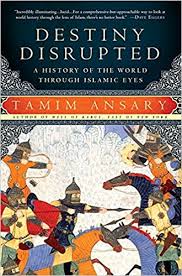 But there are even more exotic takes one could propose. The shift from the Umayyads in Damascus to the Abbasids in Baghdad was a shift of the Islamic world from the west to the east. The prominence of Iranian culture during the latter period was palpable. The Caliph al-Mamun was half Iranian, and almost moved the capital of the Abbasids to Merv in Khorasan. The Barmakid family were ethnically Iranian, but also originally hereditary Buddhists. The historian of Central Asia, Christopher Beckwith, has alluded to an “Indian period” of Islamic civilization when the influence from Dharmic religion and Indian culture was strong. For example, Beckwith and others have argued that the madrassa system derives from that of Central Asian viharas.
But there are even more exotic takes one could propose. The shift from the Umayyads in Damascus to the Abbasids in Baghdad was a shift of the Islamic world from the west to the east. The prominence of Iranian culture during the latter period was palpable. The Caliph al-Mamun was half Iranian, and almost moved the capital of the Abbasids to Merv in Khorasan. The Barmakid family were ethnically Iranian, but also originally hereditary Buddhists. The historian of Central Asia, Christopher Beckwith, has alluded to an “Indian period” of Islamic civilization when the influence from Dharmic religion and Indian culture was strong. For example, Beckwith and others have argued that the madrassa system derives from that of Central Asian viharas.
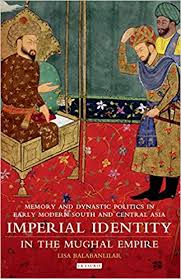 But ultimately this post and this blog is not about Classical Islamic civilization and history. Rather, I want to pivot to the discussion of Islam and India.
But ultimately this post and this blog is not about Classical Islamic civilization and history. Rather, I want to pivot to the discussion of Islam and India.
This blog now gets in the range of the same amount of traffic as my other weblog. But a major difference is the source of traffic. About two times as many visitors to this weblog come from the USA as India. So Americans are dominant. But, on my other weblog, 15 times as many visitors come from the USA as India. Additionally, since this is a group weblog, I’m pretty liberal about comments, and so this weblog receives between 10 to 100 times as many comments as my other weblog. Obviously, since most people in the world are stupid, many of the comments are stupid. I try to ignore that.
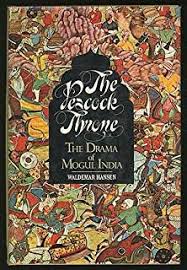 Rather, let me focus on the “hot-button” issue of Islam and India, and how it impacts people here. In the comments of this weblog. Let’s divide the comment(ers) into two stylized camps. Or actually, one person and another camp. The person is commenter Kabir, who has taken it upon himself to defend the honor of Indo-Islamic civilization. On the face of it, that’s not a major problem, but he tends to take extreme offense and demand linguistic and topical policing that’s frankly rather obnoxious (this tendency extends beyond Islam, as he is a living personification of Syme). He’s a bully without the whip. Kabir is somewhat annoying, but I can honestly always just delete his comments. He’s one person.
Rather, let me focus on the “hot-button” issue of Islam and India, and how it impacts people here. In the comments of this weblog. Let’s divide the comment(ers) into two stylized camps. Or actually, one person and another camp. The person is commenter Kabir, who has taken it upon himself to defend the honor of Indo-Islamic civilization. On the face of it, that’s not a major problem, but he tends to take extreme offense and demand linguistic and topical policing that’s frankly rather obnoxious (this tendency extends beyond Islam, as he is a living personification of Syme). He’s a bully without the whip. Kabir is somewhat annoying, but I can honestly always just delete his comments. He’s one person.
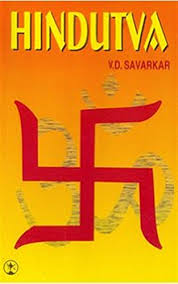 In contrast, there are those who Kabir calls “Hindu nationalists.” This is a broad slur on his part, as it basically seems to include any person from a Hindu background who disagrees with any particular social-religious take he has in relation to the Indian subcontinent or Islam. If someone who was a Chinese Catholic lesbian left a common where their identity wasn’t clear, and they disagreed with Kabir’s take, he would no doubt accuse them of being a “Hindu nationalist.”
In contrast, there are those who Kabir calls “Hindu nationalists.” This is a broad slur on his part, as it basically seems to include any person from a Hindu background who disagrees with any particular social-religious take he has in relation to the Indian subcontinent or Islam. If someone who was a Chinese Catholic lesbian left a common where their identity wasn’t clear, and they disagreed with Kabir’s take, he would no doubt accuse them of being a “Hindu nationalist.”
If you have a hammer, everything is a nail!
But, there are genuine Hindu nationalists who read this weblog of various stripes. I have friends who personally lean toward this direction in their politics, though they are cosmopolitan in their private life. On the other hand, there are others who are more backward and probably as crazy as Kabir depicts them. Honestly, I’ve never met these people in real life…most “Indian” people I meet are either coconuts like me or cosmopolitan blockchain engineers.
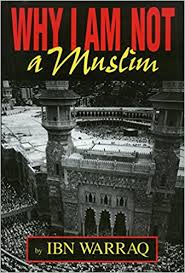 At this point, I should step back and reintroduce myself. Unlike many people from an Islamic background who are now rather frankly irreligious, I did not have a traumatic relationship with Islam. Or religion. My parents mostly raised me as a nominal Muslim, so my atheism came about naturally and at a young age. And, unlike some atheists from a Muslim background, I did not grow up in a Muslim community. Neither did I grow up in an immigrant community. I grew up in Ronald Reagan and Bill Clinton’s America as the token brown kid. I have only come to know other brown people of all religions and background as an adult. My stance is one of curiosity, and sometimes perplexment. I have a few memories of distaste when it came to attending masjid as a child because in hindsight it is clear I never believed in what they were saying and saw it as a massive waste of time and totally sterile.
At this point, I should step back and reintroduce myself. Unlike many people from an Islamic background who are now rather frankly irreligious, I did not have a traumatic relationship with Islam. Or religion. My parents mostly raised me as a nominal Muslim, so my atheism came about naturally and at a young age. And, unlike some atheists from a Muslim background, I did not grow up in a Muslim community. Neither did I grow up in an immigrant community. I grew up in Ronald Reagan and Bill Clinton’s America as the token brown kid. I have only come to know other brown people of all religions and background as an adult. My stance is one of curiosity, and sometimes perplexment. I have a few memories of distaste when it came to attending masjid as a child because in hindsight it is clear I never believed in what they were saying and saw it as a massive waste of time and totally sterile.
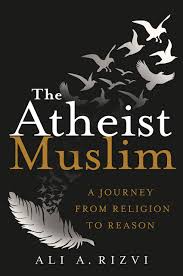 But due to this perspective, I don’t have strong opinions on South Asian politics. I wish atheists and free-thinkers would get a little break in Bangladesh. Pakistan as a nation should go see a good therapist about its identity crisis. And in India, the saffron brigade should chill out on their paranoia on all things “foreign.” The British are gone. And the Muslims are a minority (also, I had a medium-rare hamburger with bacon today!).
But due to this perspective, I don’t have strong opinions on South Asian politics. I wish atheists and free-thinkers would get a little break in Bangladesh. Pakistan as a nation should go see a good therapist about its identity crisis. And in India, the saffron brigade should chill out on their paranoia on all things “foreign.” The British are gone. And the Muslims are a minority (also, I had a medium-rare hamburger with bacon today!).
Which brings me to the concerns of the Hindu nationalists, and their relationship to Islam. Their hatred of Islam. Their love of Islam. Their inability to quit Islam.
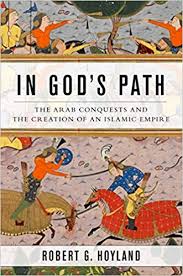 Imagine a beautiful bully. A bully with the social and interpersonal skills to hide their behavior. To get away with it. If Hindu nationalists were to personify the historical rage they feel, that seems to be their attitude toward Islam. What genetics is telling is that though South Asians are diverse, we’re a distinctive and recognizable branch of the human race that emerged out of particular social and historical dynamics that occurred between three and eight thousand year ago.
Imagine a beautiful bully. A bully with the social and interpersonal skills to hide their behavior. To get away with it. If Hindu nationalists were to personify the historical rage they feel, that seems to be their attitude toward Islam. What genetics is telling is that though South Asians are diverse, we’re a distinctive and recognizable branch of the human race that emerged out of particular social and historical dynamics that occurred between three and eight thousand year ago.
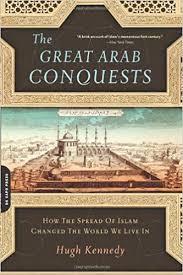 And yet Hindu nationalists see that one out of three South Asians now identifies as something distinct, part of an alienated (from South Asia) worldwide brotherhood. They used to be called Indians. What used to be called Hindus. But they are alienated from their own ancestral identity now. Their forenames are Ali or Pervez. Their surnames are Islam or Khan. Many of their sartorial choices and customs are dictated by the whims of a 7th century Arab and the norms of his community. Some even have the gall and conceit to claim to be scions of the Arab, Persian, or Turk, when their very faces give the lie to that claim.
And yet Hindu nationalists see that one out of three South Asians now identifies as something distinct, part of an alienated (from South Asia) worldwide brotherhood. They used to be called Indians. What used to be called Hindus. But they are alienated from their own ancestral identity now. Their forenames are Ali or Pervez. Their surnames are Islam or Khan. Many of their sartorial choices and customs are dictated by the whims of a 7th century Arab and the norms of his community. Some even have the gall and conceit to claim to be scions of the Arab, Persian, or Turk, when their very faces give the lie to that claim.
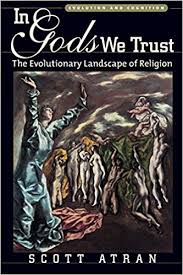 As someone emotionally, personally, detached from the Indian subcontinent and its identities this is what I see. What I observe.
As someone emotionally, personally, detached from the Indian subcontinent and its identities this is what I see. What I observe.
As a participant, even at the margins, my perspectives exist as well. Because the social norms in Islam outside of the West look dimly upon irtidāds, my general stance all things equal is to look where the Muslims stand, and take the opposite position. The mainstream view within Islam is that apostasy is punished due to its social and political implications. That is, it is treason. The punishment for treason is death.
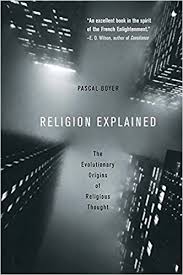 Which brings me to reflect on attempting to understanding what Islam is, and why it is the way it is. Most atheists who have never been religious tend to have certain personalities. We’re not really intuitive people. We’re more analytic types. To understand a religion we believe that we should understand its doctrines.
Which brings me to reflect on attempting to understanding what Islam is, and why it is the way it is. Most atheists who have never been religious tend to have certain personalities. We’re not really intuitive people. We’re more analytic types. To understand a religion we believe that we should understand its doctrines.
This is easiest with Protestant Christianity, which in the United States of America is defined by a confessional individualistic orientation. That is, religious identity is fluid, and contingent on the freely given profession of faith in the doctrines of a particular sect. More liturgical forms of Christianity, such as Roman Catholicism and Eastern Orthodoxy, are somewhat different, but the overall emphasis on particularities of belief remains.
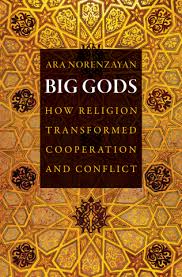 The landscape changes once one moves to Judaism and Islam, which are both orthopraxic religions. That is, traditional Judaism and Islam have highly developed tradition of religious law which apply to all believers, and not simply religious professionals. At least notionally. Though particular beliefs about the nature of God remain at the heart of customary Judaism and Islam, on the balance formulaic orthodoxy is not given as much overwhelming weight.
The landscape changes once one moves to Judaism and Islam, which are both orthopraxic religions. That is, traditional Judaism and Islam have highly developed tradition of religious law which apply to all believers, and not simply religious professionals. At least notionally. Though particular beliefs about the nature of God remain at the heart of customary Judaism and Islam, on the balance formulaic orthodoxy is not given as much overwhelming weight.
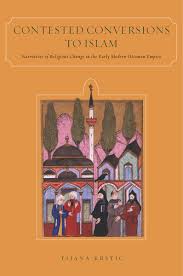 Whereas early Christians underwent conflicts over the precise nature of the Trinitarian doctrinal formula, early Muslims divided predominantly along lines of the nature of religious leadership.
Whereas early Christians underwent conflicts over the precise nature of the Trinitarian doctrinal formula, early Muslims divided predominantly along lines of the nature of religious leadership.
When we move to the Dharmic traditions and Chinese and Japanese religion, the landscape alters again. I will forgo exploration of this topic since it is not germane to the post. Suffice to say I am well aware of the diversity and particularity across all these traditions.
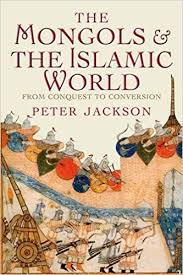 Rather, let’s take a step back to Islam. The brutal bully whose life is charmed. The standard narrative is that Islam spread rapidly over a century, from the Indus to the shores of the Atlantic. It is a stupendous feat.
Rather, let’s take a step back to Islam. The brutal bully whose life is charmed. The standard narrative is that Islam spread rapidly over a century, from the Indus to the shores of the Atlantic. It is a stupendous feat.
How did this happen? Naturally, Muslims will assert that it was the will of God himself. Islam succeeded in its audacity because it is true. Those of us who are not Muslim do not accept this viewpoint, because to us Islam is obviously not true.
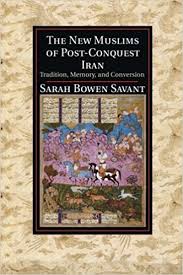 So what explanation can we kaffirs give for this feat? A natural one adhered to by many is that Islam is by its doctrinal nature well suited to obtaining submission, and then in a sort of Stockholm Syndrome those who submit to conquest convert their own identity so they become partners in their own oppression and that of others. This model is one where the sons of pagans, Christians, and Hindus bow before Allah on High and smite the unbeliever in their own turn, in a devilish radius of conquest outward from the center.
So what explanation can we kaffirs give for this feat? A natural one adhered to by many is that Islam is by its doctrinal nature well suited to obtaining submission, and then in a sort of Stockholm Syndrome those who submit to conquest convert their own identity so they become partners in their own oppression and that of others. This model is one where the sons of pagans, Christians, and Hindus bow before Allah on High and smite the unbeliever in their own turn, in a devilish radius of conquest outward from the center.
And the blueprint is all there in the Koran and the Sunnah. All that one needs to do is to execute the plan was there in the beginning. All the snake had to do was uncoil.
To a great extent, this was my view 15 years ago. Because I was an atheist who had never been religious this made sense to me, because religion was about ideology, and the Islamic ideology was plainly one of submission. After all, Islam means “submission to God.”
Though I have never been a believer in a non-Muslim religion, my impression is that many non-Muslims find this also an easy way to understand Islam. Muslim majoritarianism has traditionally been brutal to non-Muslims, and it isn’t as if Muslims keep their doctrines and practices secret. Their contempt for kaffirs derives naturally from the nature of the religion, not some perverse heritable trait. Muslims are taught to have contempt for non-Muslims. They aren’t born with it.
Of course, there are those who disagree with this position for political and cultural reasons. These are the type of people who claim that Islam is a peaceful religion of tolerance. These people are either lying or deluded. Ultimately they don’t really care about Islam, they care about their own particular positions in culture wars fundamentally having nothing to do with Islam.
Over the years though I have come to revise my views about why Islam is the way it is and how it got to be the way it is. On the whole, I don’t really disagree with my earlier view that Muslims and Islamic societies tend to be characterized by intolerance and exclusion. These are not societies that I would ever want to be a member of. But, I have come to believe that this is less due to the fundamental nature of Islamic doctrine, and more due to historically contingent events. In other words, Islam and Muslim societies are the way they are for reasons that have nothing to do with the doctrines and scriptures of Islam.
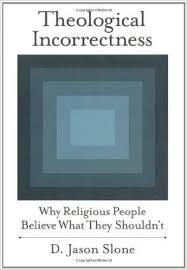 This revision in my views has two broad sources. One is the cognitive anthropology of religion. This is a discipline which allows someone like me, who has never been religious, inside the minds of those who believe. Like many sciences, the findings of this field are confusing, startling, and often counter-intuitive. Glossing over the details, I will say though that they have convinced me that the logical consequences from doctrine given by the religious are almost always post facto rationalizations, and not a true inference via propositional logic. This applies to all religions. And it applies to Islam itself.
This revision in my views has two broad sources. One is the cognitive anthropology of religion. This is a discipline which allows someone like me, who has never been religious, inside the minds of those who believe. Like many sciences, the findings of this field are confusing, startling, and often counter-intuitive. Glossing over the details, I will say though that they have convinced me that the logical consequences from doctrine given by the religious are almost always post facto rationalizations, and not a true inference via propositional logic. This applies to all religions. And it applies to Islam itself.
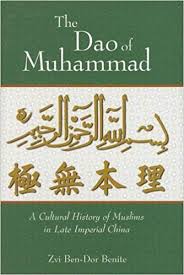 Consider that 2,000 years ago a poor and pacifistic Jewish preacher triggered a cultural revolution that led to the emergence of a world religion. That world religion eventually became the heart of a civilization that went on to commit the greatest quantity of acts of violent brutality on an aggregate basis in the history of our species. The line between the prince of peace and slaughtering heretics and enslaving Africans is peculiar indeed.
Consider that 2,000 years ago a poor and pacifistic Jewish preacher triggered a cultural revolution that led to the emergence of a world religion. That world religion eventually became the heart of a civilization that went on to commit the greatest quantity of acts of violent brutality on an aggregate basis in the history of our species. The line between the prince of peace and slaughtering heretics and enslaving Africans is peculiar indeed.
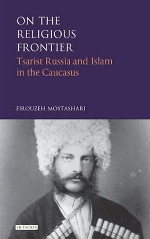 Second, contingent history matters. It will not here recapitulate revisionist scholarship about Islam, but I do not think it unreasonable to contend that much of what we know about Islam developed in the century after the conquest. In other words, the Arabs did not conquer as Muslims, the conquerors became Muslims. The shape of Islam then was defined by the reality that emerged within the context of being an imperial religion, just as the nature of Jews after the failure of the second rebellion against the Romans until the founding of the state of Israel was one of being a pacific and supine religion.
Second, contingent history matters. It will not here recapitulate revisionist scholarship about Islam, but I do not think it unreasonable to contend that much of what we know about Islam developed in the century after the conquest. In other words, the Arabs did not conquer as Muslims, the conquerors became Muslims. The shape of Islam then was defined by the reality that emerged within the context of being an imperial religion, just as the nature of Jews after the failure of the second rebellion against the Romans until the founding of the state of Israel was one of being a pacific and supine religion.
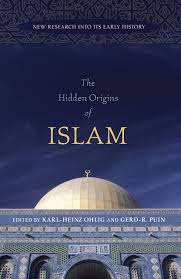 Many Indian commenters on this weblog promote a view of Islam, and the Abrahamic religions to a lesser extent, that is in line with my views from 15 years ago. It’s there right to hold these views, but I will object when individuals assume that these views are self-evidently true. Descriptively I tend to agree with Hindu nationalists that many Muslims of Hindu descent exhibit some level of Stockholm Syndrome, reveling in the brutal conquest of their black ancestors by Muslim Turks. But when it comes to the cause of the symptoms…that is a more complex thing than they are willing to credit in my opinion.
Many Indian commenters on this weblog promote a view of Islam, and the Abrahamic religions to a lesser extent, that is in line with my views from 15 years ago. It’s there right to hold these views, but I will object when individuals assume that these views are self-evidently true. Descriptively I tend to agree with Hindu nationalists that many Muslims of Hindu descent exhibit some level of Stockholm Syndrome, reveling in the brutal conquest of their black ancestors by Muslim Turks. But when it comes to the cause of the symptoms…that is a more complex thing than they are willing to credit in my opinion.
The ideological and missionary impulse of Islam is clearly a real doctrinal thing. And that makes it different from most streams of Hinduism. But there are far more contingent sequences of events than I think we often acknowledge.
 Which brings me to the reality that contingent history that has happened cannot be unhappened. The history of Islam within India is a fact. 1,000 years of domination is a fact. Centuries of domination across much of the subcontinent by alien Muslim elites is a fact. It is a fact that the most glamorous ruling dynasty of the last 1,000 years in the Indian subcontinent was that of the Mughals. Though to some extent culturally and genetically assimilated, this ruling dynasty was of Turco-Mongol provenance, and always bowed down to a religion for which India was not holy.
Which brings me to the reality that contingent history that has happened cannot be unhappened. The history of Islam within India is a fact. 1,000 years of domination is a fact. Centuries of domination across much of the subcontinent by alien Muslim elites is a fact. It is a fact that the most glamorous ruling dynasty of the last 1,000 years in the Indian subcontinent was that of the Mughals. Though to some extent culturally and genetically assimilated, this ruling dynasty was of Turco-Mongol provenance, and always bowed down to a religion for which India was not holy.
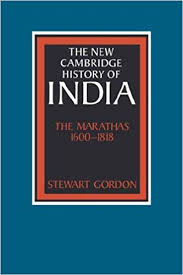 Over the past few centuries, Indians have by and large shucked off Muslim domination. Those areas which are Muslim dominated are no longer India, being distinct nation-states. But the weight of history still hangs over the subcontinent. One could attempt to make the case that the 1,000 years when Muslim ghazis ran roughshod over the subcontinent was an aberration, a fever dream. But the very act of purifying languages of their Arabic and Persian words points to the reality that the serum of the aliens was injected into the veins of Indian civilization.
Over the past few centuries, Indians have by and large shucked off Muslim domination. Those areas which are Muslim dominated are no longer India, being distinct nation-states. But the weight of history still hangs over the subcontinent. One could attempt to make the case that the 1,000 years when Muslim ghazis ran roughshod over the subcontinent was an aberration, a fever dream. But the very act of purifying languages of their Arabic and Persian words points to the reality that the serum of the aliens was injected into the veins of Indian civilization.
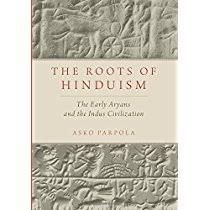 Pakistanis and Bangladeshis, and many Indian Muslims, especially those of the northern states, have their own deep identity crises. Many of them are raised with a deep and abiding contempt for the traditions and folkways of the non-Muslim peoples of the subcontinent, but on some level most must understand that these non-Muslims are the same people as their own were before the great change. Whereas the vast majority of Persians converted to Islam, and bent the knee to the Arabs for whom they had and still have so much contempt, the majority of South Asians remain non-Muslim. Witness to the cultural identity which Muslims in the subcontinent have turned their backs upon.
Pakistanis and Bangladeshis, and many Indian Muslims, especially those of the northern states, have their own deep identity crises. Many of them are raised with a deep and abiding contempt for the traditions and folkways of the non-Muslim peoples of the subcontinent, but on some level most must understand that these non-Muslims are the same people as their own were before the great change. Whereas the vast majority of Persians converted to Islam, and bent the knee to the Arabs for whom they had and still have so much contempt, the majority of South Asians remain non-Muslim. Witness to the cultural identity which Muslims in the subcontinent have turned their backs upon.
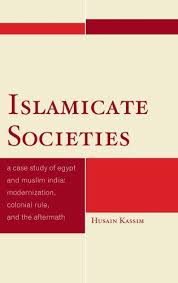 And yet many Hindus, envious of the vigor of the Muslims, noticing their international connections, and confused by the bizarre Islamophilic tendencies of the progressive West, may have to admit that the history of Islam is now also part of their history. The Sufi orders which were so instrumental to the spread of Islam served to buttress the great Indo-Islamic polities with their institutional heft, may themselves have been transmuted from Buddhist religious communities early Muslims encountered in eastern Iran and in Turan. If Islam is the snake, then part of the root of the serpent is ultimately Hindu, that is, Indian. It could be no other way, as Islam is the youngest of the great world religions. Constructed from preexistent modules perfected in other traditions. It was a computer assembled at home from commodity parts.
And yet many Hindus, envious of the vigor of the Muslims, noticing their international connections, and confused by the bizarre Islamophilic tendencies of the progressive West, may have to admit that the history of Islam is now also part of their history. The Sufi orders which were so instrumental to the spread of Islam served to buttress the great Indo-Islamic polities with their institutional heft, may themselves have been transmuted from Buddhist religious communities early Muslims encountered in eastern Iran and in Turan. If Islam is the snake, then part of the root of the serpent is ultimately Hindu, that is, Indian. It could be no other way, as Islam is the youngest of the great world religions. Constructed from preexistent modules perfected in other traditions. It was a computer assembled at home from commodity parts.
 But even aside from older traditions’ roles in shaping Muslim thought, practice, and institutions, the educated Hindu of 1800 AD surely was influenced and impacted by the arrival and domination by Muslims in comparison to their precursor in 800 AD. Today in the West there are neopagans and other assorted post-Christian types who wish to recapture ancestral pre-Christian spirituality. The problem they always run up against is that that spirituality is passed down only due to the efforts of Christians, often clerics, who in the act of selection and modification likely reframed the old ways in more Christian terms. And, the lived pagan tradition was broken long ago, distributed and diffused through rural folk customs among unlettered peasants who transformed rapidly into modern urban Europeans just as the Romantic pagan awakening was beginning.
But even aside from older traditions’ roles in shaping Muslim thought, practice, and institutions, the educated Hindu of 1800 AD surely was influenced and impacted by the arrival and domination by Muslims in comparison to their precursor in 800 AD. Today in the West there are neopagans and other assorted post-Christian types who wish to recapture ancestral pre-Christian spirituality. The problem they always run up against is that that spirituality is passed down only due to the efforts of Christians, often clerics, who in the act of selection and modification likely reframed the old ways in more Christian terms. And, the lived pagan tradition was broken long ago, distributed and diffused through rural folk customs among unlettered peasants who transformed rapidly into modern urban Europeans just as the Romantic pagan awakening was beginning.
Obviously, Hinduism does not have such a great rupture. The tradition of Adi Shankara lives on. Religious reformers and innovators such a Chaitanya Mahaprabhu flourished even under Muslim Afghan rule. There is no need to reconstruct and resurrect Hinduism because it is a lived tradition. But Hinduism, Indian culture, Indian nationality, as it was before the Muslims arrived in large numbers is gone, transmuted and transformed into something new. But even if we can’t move backward, there is no shame in moving forward to better things.
Addendum: Muslim scholars, such as Shadi Hamid (and I believe our own Omar Ali), do sometimes claim that Islam is sui generis. That it may be ideologically, constitutively, resistant to secularism and the normal process of pacification of religion. This is not a crazy position and can be well argued, and to be frank, I am quite open to being convinced again of my old views.
Hindus (Buddhists, Jains, Sikhs included) know almost nothing about Islam. They think Mohammed pbuh is a very high saint, or Krishna or Buddha or Mahavira or Guru Gobind Singh; and that Islam is similar to Hinduism. The vast majority think that all religions are almost the same. Or “same, same”.
I have found that nonmuslims in general know almost nothing about Islam. And that most muslims know little about Islam. Most muslims are terrified of Jihadis and have lots of questions about Islam they are afraid to ask or haven’t asked for some other reason.
The vast majority of humans don’t think like you and wouldn’t understand how you think if they tried. Factor this into your thinking. One of my favorite college professors use to tell me; the more stupid you assume people are, the more successful you will be in life.
Sufism reflects the loving convergence of Ali/Fatima/Hassan/Hussain with Zorastrianism, Hinduism, Buddhist Hinduism, Jainism. Sikhims comes out of the Sufi/Hindu/Buddhist/Jain millennia. Sufism is partly the Aryanization and Hinduization of Islam. But there is more to it than that.
Many of the sayings, practices, experiences of Ali were Hindu/Buddhist/Yoga like. To understand how, I think someone needs to be a meditater.
“In other words, Islam and Muslim societies are the way they are for reasons that have nothing to do with the doctrines and scriptures of Islam.” Don’t agree.
“cognitive anthropology of religion” . . . I don’t know what this means. I have found very few in liberal arts academia who had a clue about religion. The experiential part of brain/nervous system awareness was almost always completely misunderstood.
“they have convinced me that the logical consequences from doctrine given by the religious are almost always post facto rationalizations, and not a true inference via propositional logic. This applies to all religions. And it applies to Islam itself.”
This applies to most people in almost every aspect of their life. This is also mostly true of religion, but not completely true. To understand religion someone needs to understand the different levels of subtlety of thought, of emotion, and of brain/nervous system awareness. Deep emotion is not well understood by psychiatrists either. Although neurosciences is making rapid progress.
I need to sleep now!
Wow! A monumental effort! I hope this post will have many comments and everyone who comments will do so with sincere desire to exchange ideas and opinions, not just shoot the usual arrows quickly.
Yes, you are right that nobody who is not raised in a immersive environment of a religion can appreciate how it forms and informs one’s psyche and philosophy throughout life. I am very inclined to the view that religious piety has lot of biological roots, some people are inclined to be faithful while others are constitutionally skeptic or indifferent. Looking back, I think that I had always been a skeptical kind of guy because I always thought logic and rationality are the most important things in the world. However, Muslim kids are raised to think that Islam is perfectly logical and rational. Only in later boyhood, around the year 10-11, I started noticing big contradictions.
I and most Muslim kids grow up with a few very important ideas of Islam that remain at the back of the head always. In my view, the most important one is a very vivid and horrible idea of hell. Secondly, perfection and incomprable greatness of the life and deeds of Muhammad. Thirdly, perfection of the words of Quran, the direct utterings of the unimaginable creator of universes. If you had these ideas in your childhood, no matter what you turn up later in life, Salafi, Wahabi, Sufi, Skeptic, Atheist or Islamophobe, you are never out of the shadow of those ideas.
just sat down after dinner tonight and i just wrote this. sometimes just comes to me. as the blog has gotten more popular and more indian the comments are getting harder and harder for me to understand. i think this is my attempt at characterizing the dynamic.
popularity has its downsides..
Also the American readers on this blog are probably desi as it is..
That would be my guess too.
Time for a new reader poll, Razib?
not me.
I wish you wouldn’t personalize things. I’m sorry you find me annoying. But I seem to be one of the only people here to defend the Pakistani and the Muslim viewpoints. At this point, I would love to have some posts which have nothing to do with Islam or Hinduism, but those topics seem to be what people want to discuss. I also don’t label everyone of a Hindu background “Hindu nationalist” only those who align with the BJP and RSS’s majoritarian and anti-Islamic positions. There are many Indians who disagree with the BJP’s politics (they don’t seem to be commenting on BP in huge numbers).
I don’t think Islam is uniquely contemptuous of non-believers or resistant to secularism. Most (if not all) religions are built on a separation between those who believe the “truth” and those who are misguided. Roman Catholics used to believe that everyone who did not believe in Catholicism (even if they called themselves Christian) was going to hell. However, European societies have developed a notion of secularism and separation of church and state. This only happened after much intra-Christian violence. The “Islamic world” has not yet reached this stage of evolution.
For me, Islam is really more of a culture than a religion. I’m not particularly religious, but I don’t like when the cultural norms of my country of origin are referred to as “barbaric”. I don’t think most people would appreciate this. Most of the back and forth on this blog is really political rather than religious. There is a contestation between two different ideas of India. One is a secular state that belongs to all those who are Indian citizens while the other is a majoritarian society that belongs first and foremost to Hindus (just as Pakistan belongs first and foremost to Muslims). In this battle, I am clearly on the side of Nehru’s idea of India. I don’t like majoritarian states. If there were “Islamists” on this blog, I would be against them as much as I am against the Hindutvadis.
Kabir, the point is that you do not “defend the Pakistani and the Muslim” viewpoint in this blog. You just complain about something should not be said, complain about impropriety, complain about tameez. You have nothing important to say about Islam because your knowledge of Islam is what you heard at your grandma’s knee. That is why you are so annoying.
If there were a sincere defender of Islam here, one who furiously parried ideas and assertions with similar ideas and assertions, he/she would have been feted and cherished. Alas! we have none. We have only you!
I’m sorry you don’t like me. I’m not particularly fond of you either. But that’s neither here nor there.
I would love to not have to say anything about Islam but some of the blatant Islamophobia and anti-Pakistan drivel on this blog needs to be checked.
Kabir, an honest question: what kind of discourse on those topics would you not consider to be Pakistan- or Islam-bashing? When we are discussing history or religion, isn’t critique of the subjects a natural part of the conversation? When it comes to India and Hinsuism, I’d say pretty much all of the Indians and Hindus on this site (liberals or Hindu nationalists) make pretty frank comments.
Off-topic: I owe you a vote of thanks for recommending the “Tears of the Rajahs” book. I didn’t think I had anything new to learn about that period, but I did gain more insight by reading it. We can always discuss that period, and British colonialism in general. It’ll probably be a more neutral topic, and yet interesting enough.
Numinous,
I have no issues with people criticizing Pakistan or Islam. If the comments are backed up by scholarly work, it is even better. However, on this forum it seems that people too often just express their reflexive hate for Islam and for the Islamic Republic of Pakistan. Calling Muslims “barbarians” or holding all of us responsible for ISIS is unacceptable. You have not done this, but there have been examples on this forum before. There were some people on the forum who got very offended at all the discussion of the Hindu caste system, but that honestly paled in comparison to what is said about Islam. Also, most of what people say about Pakistan comes out of ignorance. It behooves people to do some research before spouting off about things outside of their area of expertise.
I’m glad you got something out of “The Tears of the Rajahs”.
“I’m sorry you don’t like me.” Shafiq didn’t write this
“I’m not particularly fond of you either.” What possible edge is there in thinking or speaking this way? We are all combinations of the big bang (or divine if you prefer that nomenclature) and interconnected. I think our nature is to love all with all our heart, all our soul, all our mind and all our strength.
“blatant Islamophobia” . . . you can respond by quoting specific passages of the holy Koran and Islamic scripture and specific great muslims.
“anti-Pakistan” Constructive feedback is a demonstration of love.
Anan,
I have repeatedly said to you that I don’t believe in this “love all” claptrap. It’s not a rational way to respond.
Don’t tell me how I should respond to Islamophobia. It is extremely condescending.
Kabir, the point is that you do not “defend the Pakistani and the Muslim” viewpoint in this blog.
you act like a hall monitor. half the time instead of engaging in an issue you simply say “this is offensive” or “it’s creep you are talking about that….”
it’s not your place to place stuff off bounds.
also, i understand you think you’re a very well-read and smart guy. but the way you drop the name of a given intellectual and assume we’ll think that that’s an answer is kind. half the time i’ve read the books you cite by reputation.
your views are different from internet hindus, but there are broad similarities in the way you argue.
It’s not my place to place stuff off bounds but I can note that there seems to be an inordinate obsession with Islam and with Pakistan and that many people who comment on these topics have no idea what they are talking about.
People also have no idea what “postmodernism” entails and yet they go on and on about it.
yes. that’s not what i’m talking about.
you’ve seen me express irritation with people on those terms (though generally my posts don’t involve pakistan, not a topic i’m interested in and don’t follow those comments closely).
instead you post shit like “this is offensive” or “its’ disrespectful to muslims to not use the predicate ‘prophet'” or as a contrast “it’s stupid to base historical analysis on hindu myths” when if you saw the same comment with islam you would flip out. you also present an unsophisticated and naive view of early muslim historiography, which is common with most muslims, and frankly non-muslims, but you pass yourself as a great humanistic intellect who can speak ex cathedra.
you cite critical humanistic research, which is fine (i’ve read some of that stuff), but when the same revisionism is applied to islam you dismiss/ignore it. or you don’t know about it.
that’s fine, but don’t act like people don’t notice.
the problem is less the substance of your objection since too often there isn’t any. it’s the style.
if you want to defend islam or pakistan look to ikram-the-asshole. he’s an asshole, yes, and even has a history of bad faith arguments, but at least there’s something substantive to engage with. half the time you seem like you are throwing a fit.
and plenty non-hindutva people agree with this assessment of your behavior, so it’s not ideological.
you would gain traction with your quibbles with AnAn’s comments (which i share to some extent) if you didn’t believe like an obnoxious language-police. you focus so much on semantics that your critique of AnAn’s semantic ripostes have no force.
I have no patience for stupidity or Islamophobia and I’m not going to apologize for that. I am completely done with Anan as he is a nutjob of the highest order.
I will be taking a break from this forum. Feel free to play with your Hindu nationalists. Have fun. Very few people here have as much knowledge of the liberal arts as I do. That is a fact.
I have a general policy of not responding to you. But I am breaking this just once, because you brought Indian politcs up as a defence. You think you understand it, but you do not I am afraid.
The picture of India you have is a caricature. A bimodal, either you’re with us or against us, simplification.
And even if you had to simplify the picture, you have got the modes wrong. It isn’t as much a tussle between a “secular” Nehruvian Consensus at one end v the “fascist” Hindutva Right on the other.
It is better defined as a tussle between the erstwhile political elite who thought they could speak for the hoi polloi (whatever the nobility of their intentions) and the rabble rousers who don’t know their place anymore (as they used to). The shit that gets flung out of this churn isn’t pretty. Bit it is shit that was under the carpet for a *very long time*. It better be out for us to smell its stink and be revolted by it and build a loo to flush it down, than for it pile up under the carpet for another 70 years.
PS: Maybe you are right and what I said above is totally nuts. But labelling people as Hindutvavadis (“Hindutvadis” is meaningless BTW) does not help your argument.
PPS: I personally do not like mention of anyone by name. So I am with you on that. But Razib has his direct style and sensibility (v American I feel) different from mine. In the end just personal preference.
If I don’t understand Indian politics, you all don’t understand Pakistan. Doesn’t stop you from pontificating. Do not condescend to me.
I read Scroll.in and The Wire.in. I am aware that the Hindu Right wants to destroy Nehru’s idea of India. That’s enough to know which side to be on.
Nehru’s idea of India was killed by Jinnah who preferred religious state over secular democracy and succeeded in his demand.
First of all, Quaid-e-Azam did not want Pakistan to be a religious state but a homeland for British India’s Muslims. The August 11 speech makes it very clear what he wanted. It was Congress’s inability to compromise that led to Partition.
Nehru’s idea of India is relevant in the post-Partition context. It would have been very easy to declare India a Hindu state in 1947. Instead, India is constitutionally secular. The Congress party went out of its way to make Muslims and other minorities feel that they had equal stakes in the nation. It is only since the Modi regime came into power that this idea of the nation is coming under serious threat. Congress would not have stood for Muslims being lynched over beef.
Kabir, I think I understand what you are doing , but it’s quite disingenuous to praise Nehruvian secularism when you recall that Congress (and Gandhi and Nehru) were considered either Hindu nationalist themselves or on the side of the Hindu nationalists by Jinnah and the advocates of the TNT. Congress-Raj was considered to be the same as Hindu-Raj (you may not like this equivalence, but I see the same paranoia and impatience in the minds of the Southern leaders when they refused to tolerate even the idea of a Lincoln presidency, and chose to secede.)
Back to the point, just like the paranoia over a Congress Raj did not bear out, I think it’s unfair to malign the BJP (and other forces in opposition to the Congress) as being guided by pure malice and chauvinism. As Slapstick hinted, Modi’s ascension is the result of populist democratic politics; the public badly wanted a change. The longer the BJP is in power, the more it will learn to be a moderate governing force (at least that’s the expectation.) It’s not the second coming of the Nazi party, regardless of what Savarkar though. And mob lynchings for whatever reason have unfortunately not been too uncommon in India. It’s the result of absent or incompetent law enforcement, so too much should not be read into it.
Numinous,
It is true that the pre-Partition Congress mostly represented Hindu interests. Still, in the post-Partition scenario there is a huge difference between a party that believes India belongs to all Indians and one that believes in a “Hindu Rashtra”.
The Modi regime has been in power for four years. I don’t see any signs of BJP becoming a “moderate governing force”. Lynchings of Muslims are completely unacceptable under any circumstances, no matter what the excuse. What is even more shameful is that the Prime Minister and his party clearly side with the perpetrators and blame the victims.
I make no bones about my position that the Congress Party is on the right side of history and the BJP’s vision of a Hindu majoritarian society is frankly disgusting.
>Kabir, I think I understand what you are doing , but it’s quite disingenuous to praise Nehruvian secularism when you recall that Congress (and Gandhi and Nehru) were considered either Hindu nationalist themselves or on the side of the Hindu nationalists by Jinnah and the advocates of the TNT.
The Congress has always been a big tent party with members ranging from socialists to Hindutvavadis, which is what lead to things like a cow protection clause in the Indian constitution. Hindus have always been a staple votebank for the Congress, even now. Just look at Rahul Gandhi calling himself a Shiv Bhakt and trying to get back the votes BJP sponged up from the INC.
> The longer the BJP is in power, the more it will learn to be a moderate governing force
What are you talking about the BJP needing to learn to be a moderate governing force? It’s not a newly formed party which just came to power. It’s a party which has existed f0r 30 years, filled with veteran politicians who’ve had a shot at running the country for years. How many years does Modi who spent almost a decade as Chief Minister of Gujarat need to learn to be a moderate governing force?
Those Pakistanis who love Nehru’s secularism and democracy should start a ‘Nehruvian Secular Democratic Party of Pakistan’ , contest elections and try to implement their vision – all my sympathies and moral support for such a political movement. That will show skin in the game and commitment.
I do think that Pakistanis need to show an incision towards the nature of Islam.
It is best to criticise all ideas that you love.
I’m happy for my (Baha’i Faith) to be criticised though I must confess I wouldn’t like to be disrespected.
What is the fine line between criticism and disrespect is an interesting debate..
@Zack
Ppl don’t know much about Bahai to criticize it .
BTW most ppl, including me don’t criticize for criticism’s sake. For an idea or idea cluster to be criticized , it should have lot of social or political influence , usually negatively. Islam, Hinduism , Nehruism , Socialism , etc are all game .
In perverse societies with an unhealthy frame of mind, all the criticism is directed towards one small group of people. In healthier societies, those who wield power and their idea-cluster are called into question more often than others
Zack
I was involved in Bahai circles for a while. My major criticism is that it seems to by default have become a south Asia heavy and particularly India heavy demographic. And while in the Bahai circles it seemed a lot of missionary type outreach is ongoing in India from the Bahai.
All this is fine. My question is that why is the Bahai thrust in India towards the Hindus? I looked through the historical literature and this seems to be a recent phenomenon. Bahai at first operated their missionary activity as far as South Asia was concerned within Muslim circles. Even read that during the civil war that was the partition the Bahai were de facto seen as a sect of Muslims, and as such Bahai’s may have also done the hijri to Pakistan.
Something changed over the 60s 70s and the Bahai thrust in India shifted from Muslims to Hindus.
Personally I would like for Bahai to return their focus to Muslim south Asia. So make or incorporate qawwali artists to make Bahaullah songs instead of bhajans.
One thing is for sure, Muslims of syncretic Bharat, whether that is Ganga Jamuni tehzeeb of Hindi belt or the Bulleh Shah types in Punjab or Lalon types in Bangladesh, they are a dying breed. It is ultimately a passive Hindu lite type and can just be silent naturally (unless Hindus are involved). Sufi shrines are getting bombed left and right and if bombs don’t scare away, the scripture lines being made available about jahannam for doing innovation in Islam via veneration of saints is surely killing the mass that is loyal to Bharatiya Islam.
One group will become Salafi no doubt but I don’t think the Salafi prescription of austere Islam can actually have more takers than maybe 10% of the total Muslims. But this leaves the rest confused and directionless. I don’t think ghar wapsi to Hinduism is a real option because we Hindus are a nasty bunch and will stigmatize the ex Muslim Hindus as the lowest of low castes. I think Bahai work should go in this direction. Yes it might invite the wrath of Islamic fundamentalists, but in India the Hindu fundamentalists have some teeth. If at the top levels Bahai international leadership makes overtures to the Sangh, we would love to create the conditions for the pipeline from Islam to Bahai in India 🙂
Criticism is fine but people who criticize need to actually know what they are talking about. Anti-Islamic bigotry is not fine. There is far too much of that on this forum.
Back up your assertions from academic sources. That is the least that can be expected.
Do not condescend to me.
you’re insecure. you’re obsessed with people condescending to you.
And you, Razib, have a history of condensation towards that which you dislike or won’t bother to understand. Pot, kettle, a macin. Both of you, please, back up and be humble. Both have good points but spoil them with that kind of commentary.
I agree with his bimodality tbh – I’m increasingly drawn to the QeA school of thought with regards to separation.
I’ll sit on it for a few days to honor Razib’s post but I shall share my thoughts..
Agree.
Once you are drawn to QeA school of thought, it is a slippery slope to Taliban, Al-Queda, Deash, and worse.
That’s quite a leap of logic. There is a huge difference between a constitutionally established Muslim majority state and a terrorist group involved in bombings and beheadings.
VijayVan, what do you mean by QeA school of thought?
Daesh, Al Qaeda, and the parts of the Taliban linked to Al Qaeda (Haqqani, TTP/TNSM, LeT, JeM, LeJ/Siphah e Sahaba, IJU/IMU for example) seek to conquer and rule the world; a world where God’s will in manifested perfectly. A utopian perfect world where every human can spiritually evolve.
How is this connected to what QeA believes in?
“Most (if not all) religions are built on a separation between those who believe the “truth” and those who are misguided. ” This is Abrahamic.
The east doesn’t believe in exclusivity. Someone can be authentically many things and religions at once. The truth can be viewed from infinite angles, perspectives, views. “Darshana” means views. All can be true. This is also true of Taoism.
“For me, Islam is really more of a culture than a religion.” This is obvious
“I’m not particularly religious” Also obvious.
“but I don’t like when the cultural norms of my country of origin are referred to as “barbaric”.” Pakistan is not Islam. Islam is not Islamism. Pakistan is diverse. Why oversimplify and over associate?Enjoy multiplicity. Watch and enjoy nature.
Pakistan is 97% Muslim. I am honestly sick of you guys calling Muslims “barbaric” and constantly making anti-Pakistan comments.
It would be nice if people could discuss something other than Islam, but it doesn’t seem possible.
Kabir, there is a difference between self identified muslims and spiritually evolved muslims. Islam has had many spiritually evolved people.
Who has called Islamic masters “barbaric”?
There is a difference between Islam and Pakistan. If you don’t like articles on Pakistan, please write your own detailed nuanced rebuttals. For example write a detailed response to something like:
http://www.brownpundits.com/2018/03/26/pakistani-psychosis/
Anan
I am not going to write a “rebuttal” to anti-Pakistan drivel. “Pakistani psychosis” is an extremely offensive term. “Indian psychosis” didn’t go down so well if you recall.
With all due respect, you rarely have any idea what you are talking about, especially when it comes to Pakistan. The best thing is for you to not talk to me and I will not talk to you. Thanks.
I agree with Shafiq, this is a great post. There is also some sort of catharsis or pseudo-catharsis that may be making addicted to reading stuff like this, reading this is verily my version of watching Big Boss/Big Brother on TV 😐
I won’t debate any of the central points here since I differ too much from almost everyone here so to have a productive discussion (though if I could have the good fortune of meeting Razib or Omar any time I would look forward to talking about this sort of stuff).
One question though, Razib: does the framework of Scott Attran explain the modern Arabization and concomitant gradual erosion of syncretic/local memes in Islamic populations? In other words, are the observations that impacted your evolution on the topic since 15 years ago mostly a reflection of “legacy memes” that doesn’t take into account the more recent developments involving globalization/centralization of faith? (I am not talking of this as a phenomenon unique to Islam; in Hinduism too, some kind of homogeneous cosmopolitan Vedanta is eclipsing, though may be not obliterating, local traditions: e.g., the recent popularity of Rama Navami in certain parts of India where I am told it wasn’t traditionally popular).
I am tempted to link to Manasataramgini here, but will resist 😉
did you make this point several years ago about the centralisation of Hinduism.
it’s one of those comments I remember and struck me as I notice it in Vidhi’s family. Cheti Chand falls to the wayside for Diwali and now all the “national Hindu festivals” are edging out any local Sindhi ones..
India is certainly glamorising it.
I don’t remember making this point here, but it is possible I might’ve done so, since I had been noticing this “globalization” thing for several years. I don’t know how this interacts with the general tendency of Hindus to adopt random customs (apparently many Indian schools celebrate Halloween now!).
Edit: A bit surprised to hear about Cheti Chand though – Indian “equinox” festivals vary according to region, and do seem to somewhat preserve their individuality and existence.
One question though, Razib: does the framework of Scott Attran explain the modern Arabization and concomitant gradual erosion of syncretic/local memes in Islamic populations?
that’s a separate dynamic to do with modernization. one of the first things on the internet that i wrote about was about this!
i think arabicization is an OK way to think about it…but it’s almost as if it’s a global-normative process happening all over the place. after all, local arab practices are being erased and smoothed out too. movements like deoband were happening at the same time as what was happening in arabia, so i think it’s a world-wide muslim rxn to early modernity, combined with late modern globalization.
one of the first things on the internet that i wrote about was about this!
Link? Thanks in advance.
Link? Thanks in advance.
from a blog before gene expression that’s gone.
I have to concur with other commentators that this is a great post!
Just one minor comment re
I think this point is quite universal and not specific to Islam/Muslims. An age-old human affliction. Perhaps affliction is too strong a word, maybe tendency. The tendency to derive an ought from an is.
In many instances it is v tempting to do (and requires a lot of mental effort to not fall into that trap). But this sort of philosophical pitfall is best avoided for much misery comes of it, no matter how noble the intentions.
Morality is not physics. It is not sociology. It is not genetics. The body of knowledge of “oughts” and “shoulds” is its own (emergent) episteme, though it does impact all of the other fields of human inquiry and is objective.
How is morality defined? How is it different from Dharma? I would define Dharma as love in action.
I think this point is quite universal and not specific to Islam/Muslims. An age-old human affliction. Perhaps affliction is too strong a word, maybe tendency. The tendency to derive an ought from an is.
i think this is related to the is/ought fallacy. but more deeply it reflects many believers in a system X think there is something essentially true about X, and 1, 2, 3 naturally follows from the set of features X, but reality deviates from 1, 2, 3. ergo, the “true islam” or “true christianity.”
as an atheist i think it’s all false, so this never happens to me.
Do you need to take a position of either doctrinal and contingent maximalism? Dogma and culture are always playing off of each other. Culture influences dogma significantly as the time of creation, and then seeps in slowly over time. But reformers (not all analytical types become atheists) are always trying to inject heavy doses of dogma into cultural practice, and the reformers’ efforts are shaped and constrained by the scripture and magisterium of their particular religious tradition, even if they don’t understand their tradition particularly well.
I think the highly scholastic nature of the religion, along with the tradition of engagement with the world even by religious scholars, is a big part of why Islam is so resilient. That’s a good model to both introduce a lot of literalists to dogma, and to make them think they have a responsibility to make others adhere to that dogma. Not to say that Muslims aren’t able to reach a pragmatic modus vivendi like followers of other religions, but I do think there’s something about the Islamic meme complex that makes it especially good at maintaining and propagating itself.
What is dogma? What is culture?
“I think the highly scholastic nature of the religion, along with the tradition of engagement with the world even by religious scholars, is a big part of why Islam is so resilient.” But is the religion scholastic? Most muslims are afraid to study Islam and ask questions. How do Islamic religious scholars engage with the world? It has begun only recently, I would argue. Before now, people were afraid to engage in dialogue and ask questions. Part of the reason Islam is so resilient has to do with force.
“That’s a good model to both introduce a lot of literalists to dogma, and to make them think they have a responsibility to make others adhere to that dogma.” How? Especially if literalists do not understand what they are enforcing?
I think the highly scholastic nature of the religion, along with the tradition of engagement with the world even by religious scholars, is a big part of why Islam is so resilient.
it’s not really scholastic. the ulema are scholars, but it’s not we’re talking albert magnus or aquinas. though the shia take a deeper interest in philosophy (ismailis integrate neoplatonism).
which religion doesn’t have an engagement of world by religious scholars? buddhism and christianity both do. remember, tibet was a theocracy for centuries and china has repeated periods when the state has had to confiscate properties and clamp down on buddhist secret societies that were mobilizing and fomenting revolution.
Dogma and culture are always playing off of each other.
most people don’t know anything about dogma. ask a trinitarian christian about the dogma of the trinity and see if you get anything being recitation of the formula without understanding.
I think there’s a difference of degree and not type between religions, with Islam and certain types of Protestantism at one end and Buddhism and Catholicism toward the middle, with… I don’t know, antinatalist mystery cults at the other end. At the Islam/Protestant end, entry-level religious teaching is relatively common (madrasas and bible study), and there’s a strong normative push for the learned to have families and interact with the world. At the mystery cult end, learning is restricted to a few, and the learned are encouraged to completely withdraw from the world. Catholicism and Buddhism both have various sub-traditions that range between the extremes.
That stands largely apart from my main point about dogma. Most people are completely ignorant of it, but not everyone is, and dogmatic reformers are sometimes able to change cultural practice. We see that in Indonesia today. And if you want to say that reformist Indonesians are just imitating a Najdi cultural complex being exported by Saudi preachers and brainwashed return hajjis, that Najdi cultural complex is itself a result of Ibn Wahhab destroying laxer Najdi folkways, and replacing them with more dogmatically approved ones.
Fraxinicus, humans are humans.
Hindus (here defined as the 10 darshanas) have every possible range of tradition. They are characterized by an openness to art, manas (thought), buddhi (intuition), and ananda maya kosha (feelings). They have many secret traditions. Although they became less secret when Buddha forced transparency, and in recent decades when technological innovation has forced transparency.
Islam is rapidly evolving and the reformers are winning. We are seeing a globalization of religion if you will.
Again, how do you define dogma?
think there’s a difference of degree and not type between religions, with Islam and certain types of Protestantism at one end and Buddhism and Catholicism toward the middle, with… I don’t know, antinatalist mystery cults at the other end.
this is the official stance yes. reformed protestant christians created the first universal literacy societies in part because of the importance of bible study.
but three points
1) the anthropologica/psychological studies don’t show much variation by religion
2) what variation there might be might be due to confounds (eg are reformed confessional protestants in africa the same as in northern europe?)
3) finally, i know a bit muslims and reformed protestants personally. they are totally different in fluency. muslims really don’t engage in deep study to the same extent as reformed protestants. how could most who don’t read arabic?
Razib, this might be a scary topic to discuss. And it is definitely one social scientists and economists are afraid to touch.
Jewish people on average have far higher IQ and different scores on the big five psychological factors than gentiles. Why do you think this is?
At the same time anti Jewish bigotry is one of the largest problems in the world today. Is this related the former?
“anthropological/psychological studies”. Get what Psychological studies are. How do you define anthropological studies? [I couldn’t bear my anthropology classes. This once great tradition has been corrupted by post modernists.]
“they are totally different in fluency. muslims really don’t engage in deep study to the same extent as reformed protestants. how could most who don’t read arabic?”
Couldn’t agree more.
This is such a useful synthesis of many of the positions you’ve developed over the years. Considering the recursive patterns of discussions on the blog, and that anything and everything is forced to relate to “problematic islam”, the trauma of indic civilization’s encounter with, and a few other themes, the hosts should consider a moratorium on new post for a at least a few days so this doesn’t get buried too quick. For the sake of future discourse, knowing that regular commenters have at least taken these propositions and assimilated them into their “priors” would save a lot of maddening repetition.
I have created a special category (I’m all about categories) called “BP MasterPieces” and set it there. What a structured and academic flow of consciousness; simply spell-binding. Us Persians are known for our panegyrics but this time I think it’s well-worth it.
Out of respect for it I won’t be making any posts for a little while to allow this piece to breathe since I think it needs to be dispersed far and wide. It’s got an excellent comment on Twitter already:
https://twitter.com/chotan280688/status/1040906302833086464
Excellent post , Razib, worth reading. Many of educated Hindus like myself, with some open mind, can see lot of points in what you say about Islam and India. You paint Islam as a ‘rationalizing’ religion, i.e. once the decision made and act done, give reasons for the act and the results in terms of Islam. That very well could be. You can invoke Islam post facto as the reason for any action. Anyhow, in terms of the quantity of violent acts are invariably justified by the perpetrators gives a cause for concern. For example , 9/11 perpetators or even a man who killed a British soldier in broad daylight justified their action in terms of Quran / Islam. The motives could not have been clarified better
https://www.youtube.com/watch?v=SH7Ty8iPh5c
Lot of other points I can agree with i.e. very early Islam gave Arabs a tribal cohesion increasing their self-confidence which made them quickly overrun other countries.
Brilliant article Razib, and I love that you wove in the personal arc of your beliefs and understanding over time. I wish more people in the world are open to having their minds changed, that would justify the existence of such blogs.
Personally I’ve learned much from you and the other writers and commenters on here. And despite the variety of topics that are posted and the even wider variety of topics that could be commented upon by a cosmopolitan audience of educated brown elites from around the world, there are clearly a few core topics that all discussions come back to, and few are willing to let go of their entrenched positions. Clearly these ideas are very important to our individual identities and self-conceptions.
I’m going to take a break from this place, got too much going on IRL and this article is a great one to finish upon for me. Thanks a bunch to Zach, Slapstick, Vikram, Sbarrkum and others for the interesting info you’ve sent my way in our discussions.
‘But even if we can’t move backward, there is no shame in moving forward to better things’ – loved this. I look forward to a day when Hinduism sheds it’s insecurities and superstitions and takes its place self-confidently on the table of world religions.
Peace
As if it is not so already
Good luck Sid – I shall update if there is a BP London meetup in honor of Kabir Sahib’s arrival.
But even if we can’t move backward, there is no shame in moving forward to better things.
I’d really love for our (Indian) nationalists to take this to heart. I’m repelled by Hindu nationalism mainly because a lot of it seems to be so utterly reactionary. Making up ego-boosting theories that prehistoric Indians used to fly planes and harness nuclear energy are symptomatic of an unwillingness to think and move forward. Trying to extract the positives from our Hindu roots and gaining confidence from past civilizational achievements is all good, but the way forward must be underpinned by scientific thinking and open-mindedness.
Numinous, these things have been believed for many thousands of years. Shouldn’t we carefully study ancient technologies to find out what they were? Why do you automatically assume that the ancient tales have no basis?
In 2017 and 2018, many governments declassified a lot of documents on UFOs, ETs. A lot that was considered cooky in 2016 is no long cooky.
The US government had a program to study Siddhis that carefully studied Buddhist Yogic/Tantra texts. And was able to independently recreate some of the Siddhis:
https://www.youtube.com/watch?v=hBl0cwyn5GY
Today neuroscience and genetics are studying many ancient ideas. Stanford doesn’t consider these ideas cooky. But Indians do. What is the sense of that?
Modern neuroscience has borrowed heavily from Sanathana Dharma (and I would add Taoist) texts:
https://www.youtube.com/watch?v=jyfHqCWp4Pc
We can always study “ancient technology”, to the extent that we can find out about it. I was arguing against making things up. (Projecting from vague references in the scriptures and epics isn’t going to cut it.) If ancient Indians had technology that has only recently been invented (or “reinvented”), someone will have to provide a damn good reason for how and why that knowledge got lost.
There are many examples throughout history of civilizations technologically regressing for centuries or millennia. Historians should study this.
For example my own view is that per capita Indian GDP in 600 AD was probably higher than per capita Indian GDP in 1947. How did that happen?
// technology // A term which i don’t like to use loosely but since you asked for an example of technology that got lost i would like to respond & bring your attention to “Wootz steel”.
There are some absolutely wonderful ancient work from various cultures which is still being recovered as well as some that is completely lost –
https://www.toptenz.net/top-10-lost-technologies.php
The biggest reason for technological loss was that people back then used to keep trade secrets & only share them with only few of their trusted people and nepotism was rampant thus when a family having trade secrets used to get killed or die those secrets used to go with them as well.
+108
Apart from the ‘reactionary’ stuff; Hindutva must go beyond anti-Muslim baggage and evolve into a more inclusive ideology.
VijayVan, what is the ‘reactionary’ stuff you refer to?
I would say that the goal of humankind should be:
1) Love
2) Improve physical health (Sharira Siddhi)
3) Improve mental health (Chitta Shuddhi)
4) Improve Intelligence (Buddhi)
The rest takes care of itself. Transforming and improving ourselves should be the largest objective.
“Hindutva must go beyond anti-Muslim baggage” . . . Sufis, twelvers and sixers are part of the Hindutva’s base. I don’t think they are anti muslim. I would say that the objective should be to increase understanding of Islam on the part of muslims and nonmuslims. First understanding, then adjustment. With understanding, adjustment is automatic.
moving fwd. paraphrase of st. ambrose justifying suppression of paganism 😉
Numinous, we have overwhelming scientific evidence that many very advanced Egyptian technological marvels were constructed before 9700 BC. We with current technologies cannot construct similar buildings. The ancients must have had very advanced mathematics and technologies.
I wonder if Kalayavana is a reference to Egypt.
Numinous, there are serious scientists trying to decode ancient texts. It is hard to do without a great deal of intelligence and scientific knowledge. Over 99.9% of ancient texts are lost. We are trying to recreate with assorted scraps.
And not just Aryavarsha, but ancient Chinese, ancient Sumeria, ancient Egypt, ancient Ethiopia etc.
The Delhi Sultanate dates to the 13th century, while the Mughals ended in the 19th century. That seems closer to 6 centuries than 1000 years. So when was the beginning of ghazis running roughshod over the subcontinent?
We usually date the beginning of the invasions to the raids of Mahmud of Ghazni, which began in the late 900s and continued into the early 1000s. Though Mahmud and his dynasty were eventually thwarted from making any lasting conquests in India proper (though they did plunder and run a fair amount), they did create a base for themselves west of the Indus river, and eliminated Indian influences forever from what is today NW Pakistan and Eastern Afghanistan. As subsequent events would prove, eastern Afghanistan and the Khyber Pass region were excellent bases to launch invasions into India.
By an odd coincidence, shortly after posting that comment I read the remainder of the Sanskrit section in “Empires of the Word”, which discusses the Muslim incursion into South Asia. But since it’s concerned with linguistic impact, the Ghaznavids don’t play a very prominent role.
I have wondered this.
Maybe you can see:
https://www.youtube.com/watch?v=UmgMEu_9n1s&authuser=1
The Persian Empire ruled many Hindu population centers in Eastern Iran, Turin, Afghanistan and West Pakistan. These areas became Hindu Buddhist. These areas fell under muslim rule in the 640s AD. This is when the occupation began.
The Persians were not seen as an occupation because of their shared cultural values ecosystem of autonomy, federation, openness, freedom architecture.
However the new rulers were extremely different. They brought Shariah, forcible conversion, Jizyah tax and tried to destroy any trace of the preceding cultures. Destroying all universities, libraries and religious institutions.
By Malik many areas with large Hindu Buddhist populations were part of the Islamic empire:
https://en.wikipedia.org/wiki/Al-Walid_I#/media/File:Map_of_expansion_of_Caliphate.svg
This is when the definition of Bharat moved east.
“Obviously, since most people in the world are stupid, many of the comments are stupid. I try to ignore that.”
Most people are uninformed or uninterested in many subjects. That is not the same as stupid. You are uninformed and uninterested in many subjects, Razib, yet that does not mean you are stupid. But making ignoble comments like the above does detract from your posts.
When you’re past a certain point of intelligence, even people with objectively normal (or even above-average) IQ seem stupid. 120IQ brainlets can’t comprehend this, however.
Fraxinicus, wow. This needs to be explained to every 4 year old. It would have helped me immensely to understand fellow humans. I am sure it would have been very helpful to Razib, you, Omar, Shafiq, Slapstik, Frog and others too.
Post modernism prevents an open honest discussion of intelligence. For the record I think G or general intelligence is a subset within the super-set of intelligence more broadly defined (Buddhi in Sanskrit). But for this discussion to even happen, we need to make this subject politically correct.
Granted. Yet the “there are no stupid questions, only stupid answers” dictum holds. If only because the alternatives are so repugnant. Be gracious till folk demonstrate they are not worthy of it.
Adrian Martyn, these are different things:
—intelligence
—informed or uninformed
Someone can be intelligent but uninformed. Some of Razib’s and slapstik’s (and Shafiq’s, Frog’s, Jaggu’s, Siddharth’s, D’s, Omar’s etc. etc.) comments might fall into this category. But they are always very intelligent.
Some commentators are informed, knowledgeable but not intelligent.
Some commentators are uninformed and not intelligent.
I suspect Razib is referring mostly to the last category and to a lesser degree the middle category.
Intelligence among humans has a high standard deviation. If anything the standard deviation is increasing. Even if someone assumes a non normal distribution pattern of intelligence, the inequality of intelligence appears to be increasing over time. Intelligence is inspiration. Hard work is different from intelligence. Intelligence is working smarter rather than working harder.
Perhaps the rising inequality of intelligence is a good thing. Many human beings who previously died in uterus or early in life are now living long lives. And many people who were discouraged from having children before now have children. Many intelligent people are no longer pressured by society to have children. Maybe these are good things. But they increase the inequality of intelligence.
And there are things that can increase intelligence. Hope to write several articles about this. Intelligence was deeply studied for thousands of years in Sanathana Dharma traditions (Hindu, Buddhist, Jain, Sikh) and Taoism. They have many techniques which they believe improves the brain and nervous system. We need to study them and integrate them into neuroscience. Dr. Richard J. Haier believes the intelligence can be significantly increased.
Some of the methods for increasing intelligence are:
—bio-engineering stem cells
—brain electro therapy [I believe this partially simulates the effects of prolonged deep meditation]
—brain sound therapy [a very ancient technique]
—gene therapy
—computer brain interface that creates fusion AI-human intelligences
Rapid progress is being made in all five areas.
Its all down to economic and social possibility. Except in a few cases that prove the exception, nothing more. I think in understand where both of you are coming from, but at some point compassion has a role to play. Overwhelmingly it does not.
Adrian Martyn, we are seeing growing inequality of the marginal product of labor. Or of:
dY/dL where L = Labor and Y = Income or GDP
What do you think is driving this?
My hypothesis that requires additional testing is that this is being driven by growing inequality in three major areas:
—physical health
—mental health broadly defined
—intelligence broadly defined
If we wish to boost “economic and social possibility”, we need to increase physical health, mental health and intelligence. We need to increase the capacity, competence and merit of most people.
Do you agree that global society should try to increase capability, competence and merit, and if so how would you achieve it?
Do you agree that global society should try to increase physical health, mental health and intelligence, and if so how would you achieve it?
I agree that compassion or love matters. Many neuroscientists (Dr. Doty at Stanford for example) find that compassion and meditation are positively correlated with increased cognitive capacity. How do you plan to facilitate greater compassion on the part of the global public?
basically, when a blog gets more popular the comment quality goes down. this always happen. it’s because more ‘normal’ people start reading it….
Well, I simply enjoy learning about issues and cultures of which I am ignorant. Differences and commonalities delight me- bad manners does not.
I think Razib’s pet peeve is people spouting off on topics they know little about, yet pretend to be insightful (or even experts.)
that’s part of it.
but intelligence is an issue. if you expand college to 100% of the population. the average student is less intelligent, on average than when it was 10%.
No argument there. Only about the way it was put.
“Making up ego-boosting theories that prehistoric Indians used to fly planes and harness nuclear energy are symptomatic of an unwillingness to think and move forward.”
This is a straw man. These theories are false of course, but it is quite obvious that the rise of Hindu political movements in India has little to do with feeling better about the ancient past. It is very much a project rooted in the present trying to deal with two blindspots of democratic India.
First is the persistence of ethnic and caste based political loyalties. While such politics have empowered Dalits and farming groups, they have also inhibited economic growth and the development of effective institutions.
Second is the uncertain commitment of the mass Indian Muslims to India’s Constitutional morality (although, frankly mass Indian Hindu isnt a lot better IMO). I dont think this is the intention of middle class and elite Indian Muslims, and I do believe that the bulk of English speaking Muslims would like to see the mass Muslims stay free of the influence of conservative Islam. But they lack the influence to drive this change. Unlike mass Hindus who have seen economic uplift due to interactions with either the Indian state, land reform, elite Hindu or even Western enterprise, mass Muslims have seen economic growth due to connections with hyper conservative Middle Eastern polities. Contingent developments, such as the growth of an influential movie industry in Mumbai also allows elite Hindus to propagate their version of modernity to the masses in a way not available to other developing world elites.
These are the anxieties that drive the core BJP voter. The other voters keep drifting in and out based on conditions, personalities etc since these factors arent really as critical on a day to day basis as the partisans of Hindu nationalism like to think.
I’d go so far as to say the core BJP voter is more committed to anti-communism than to being anti-muslim. The latter is a tactic but the former is an end in itself for them.
girmit is right. Marxism and post modernism are the primary target.
BJP voters like Sufis, and not just because Sufis vote for the BJP. Many BJP, RSS and Hinduttva people go to Sufi shrines and Sufi spiritual events.
Yes, we see the BJP allying with PDP in J&K, giving tickets to Muslims. It even accomodates a section of Muslims elites (MJ Akbar, Shazia Ilmi) and will accomodate more with time. These people arent as worked up about a few Muslim kings as some think.
But you will never see a BJP-Left alliance anywhere.
This is a straw man.
Yeah, I wasn’t saying that was all Hindutva was about. And I don’t deny that such nationalism can have positive effects, like reduce the salience of caste. Clearly they are engaged in a nation-building effort, though I’m not sure they are going to succeed by marginalizing a substantial minority.
But if they engage in excessive veneration of our past to the extent that they have to make things up, I conclude that they don’t have much to contribute to our future progress. How exactly do our 5th century BC traditions help us solve the problems of 21st century India (not to mention the world)? Do we want to keep mooching off of the West’s good ideas while basking in a faux superiority complex about the achievements (real or imagined) of our ancient ancestors?
While learning about our past and gaining pride from it, we need to be clear-eyed about its shortcomings and instead learn to be bold and enterprising. I just don’t see Hindu nationalism giving us that, though I could be wrong.
Numinous, ancient technologies that sharply increase physical health, mental health and intelligence would be useful to implement. They need to be vigorously researched and tested; much the way the Chinese are researching and evolving accupuncture/Tai Chi/Qi Gong/Toaism. We need to fuse the old with the new and evolve.
Please watch the Rajiv Malhotry video on mind sciences in the east and the degree to which western culture is appropriated from the east without attribution.
What is the point of criticizing ancient technologies without bothering to learn about them?
Numinous, I guess I shouldnt have used the word straw man. I am just saying that the Muslim bogey is tactical (as girmit points out), not ideological.
Vikram I am planning an article on how Indian nonmuslims treat Indian muslims so badly. And it focuses on how India backs muslim extremists against reasonable muslims. Muslims lack enough free art and thought in India. And enough police protection. If they had it; they would engage in dialogue and dissolve much of the global Islamist Jihadi threat through the sweetness of love.
America is proud of her first amendment. India’s first amendment is a disgraceful abandonment of India’s reasonable muslims to the soft Islamists. India’s first amendment significantly reduces freedom of speech. Indian muslims are genuinely afraid of legal action being taken against them if they offend the Islamist Jihadis “sensibilities” too much. This is immoral and wrong.
AnAn, even if Indian Muslim elites manage produce polemical/critical works on Islam, I doubt it will have any influence. Only connecting mass Muslims with economic opportunity will lead to such influence.
They can also try setting up English medium schools.
I earnestly requested that atleast in this post people should comment with serious exchange of views in mind, looks like it was a difficult request to grant.
Razib refered to how Shadi Hamid’s famous thesis that Islam is sui generis, it is uniquely resistant to secularization (what I personally call taming of the religion). I like Shadi Hamid and I think he wants genuine open debate about most important ideas of current world. However, I think he is wrong in regarding Islam as unique. I think that Islam can be tamed and the way things are going, it will be tamed in two-three decades. It will be tamed by a significant number of Muslims leaving the religion and openly expressing their disavowal of religion. To me the most remarkable thing about Islam and Muslims is that how great gulf there is between 95% of Muslims on convictions about their faith being perfect and actual knowledge about what is in the books, what happened in early Islam’s history. In the 17-18th century, most of European Christians also believed in inerrancy or Bible, it being the word of God. But 18-19th century critical analysis of Biblical texts destroyed that illusion for most of Christians. However, there is still at least 30% Christians in USA who believe in inerrancy or Bible, the percentage is probably nearly 80-90% in Africa. However, Christians by and large are aware that there is a hge number of Christians who does not believe in inerrancy of Bible. Thaat tempers their ambition about faith.
I bought Hamid’s ‘Islamic Exceptionalism” at the beginning of the summer but did not maanage to read it due to other things. I hope to do it some time in the future and post a more detailed impression. For now, if you have time, please watch this 12 minute video of Yasir Qadhi, perhaps one of the most famous Islamic scholars in the world now. He has great credentials. 10 years in Medina higher institutions and 8 years in Yale getting a PHD on Ibn Taymiya. He is a staunch believer and do frequent excoriation of atheists and ex-muslims. But what I like about him is that he does not evade the challenges of science of rtionalism. An Yale PHD has given him the understanding that Islam and its theology cannot be rationlly justified, it can only be understood supra-rationally (his term). I post the video to show, how much of a turmoil Islamic world is going through. Yes, a homogenizing Islamic identity is suring accross all communities of Muslims. At the same time, a global wave of Muslims doubtfully looking at their faith is also surging.
https://www.youtube.com/watch?v=drYvaxpejpI
This video by Sheikh Dr Yasir Qadhi (the first part of the video Shafiq hyperlinked above) is also very good. Much of Islamic theology was inherited from other religions. Large aspects of the Islamic civil war were inherited from other religions too:
https://www.youtube.com/watch?v=gsIijPI4hU8
Kabir, please watch this. There is a discussion of Islamic scripture with respect to LBGTQ and abortion.
Please do not address comments to me. Thanks very much.
“Yes, a homogenizing Islamic identity is surging accross all communities of Muslims”
I would say a good type of multiplicity and pluralism is spreading around the muslim world. Love and heart are expanding while dialogue and diversity are multiplying.
“At the same time, a global wave of Muslims doubtfully looking at their faith is also surging.” True. The openness of muslims to new possibilities and multiplicity are also expanding.
Yasir Qadhi has risked his life (death threats from Jihadi Islamists) for the right of muslims to express themselves; and I deeply admire him for this.
I would be very curious about his perspectives on how Islam can be interpreted to allow freedom of art, thought, intuition and feeling. And his opinion on the Koran in heaven being much larger than the earthly Koran we now have; and the possibility that if we had the full Koran in heaven the earthly Koran might be interpreted differently.
Rationalism is incomplete and as we understand more and more, our rational understanding will change.
What are his views on mysticism and divine experience?
Does he think a human being can spiritually evolve to the point of Mohammed pbuh, Ali, Fatimah, Hassan and Hussain? [I do.]
If 60,000 prophets have come before, why can no others come after? Or are enlightened masters born after 632 AD now called a different name than prophets.
It would be nice if Yasir Qadhi could be a contributor to Brown Pundits.
“Razib refered to how Shadi Hamid’s famous thesis that Islam is sui generis, it is uniquely resistant to secularization (what I personally call taming of the religion).”
This isn’t either or. “Islam is sui generis, it is uniquely resistant to secularization” True. But Islam I believe is reforming at blinding speed right now. The distortions of Muawiyah, Yazid, Marwan and Malik are fast being exposed and losing their bite.
“I like Shadi Hamid and I think he wants genuine open debate about most important ideas of current world.” Agreed
“However, I think he is wrong in regarding Islam as unique.” I think Islam is unique, but this would take time to spell out. There are linguistic ways through this as Sufi Sunnis and Irfan Sufi twelver/sixers have long used.
“I think that Islam can be tamed and the way things are going, it will be tamed in two-three decades.”
It is like you are reading my mind. Completely agreed.
“It will be tamed by a significant number of Muslims leaving the religion and openly expressing their disavowal of religion.” Partly. This will open up space for muslim reformers to interpret Islamic scripture, jurisprudence, music and practice differently. There is no requirement to accept the entire Koran for muslims according to many muslim scholars. The proof of this is that there was no Koran during Mohammed’s pbuh life. Yet there were muslims.
“To me the most remarkable thing about Islam and Muslims is that how great gulf there is between 95% of Muslims on convictions about their faith being perfect and actual knowledge about what is in the books, what happened in early Islam’s history.”
I am continually surprised by the extent to which this is true. As a kid I read a translation of the Koran that I only partly remember now. I greatly preferred other Islamic texts, especially of the Sufi and Irfan Sufi mystical twelver variety. I also love the twelver four hadiths. I feel I know less than a quintillianth about Islam; yet many muslims that I speak to don’t even know that much.
I think there is a way to accept the Koran as true and interpret it liberally (including metaphorically and symbolically). But I am afraid to openly explain why I think this. I am a coward 🙁
“In the 17-18th century, most of European Christians also believed in inerrancy or Bible, it being the word of God.” It was not the same as with the holy Koran, though. Not even then. Christian theologians were explicit and honest with their views. At least for the highly educated.
“But 18-19th century critical analysis of Biblical texts destroyed that illusion for most of Christians.” True.
“However, there is still at least 30% Christians in USA who believe in inerrancy or Bible, the percentage is probably nearly 80-90% in Africa.” I have had open conversations with very conservative evangelical Christians. It is a little more sophisticated than that . . . at least in their interactions with educated people who know Christian theology. In Africa, you might be right.
The catholic Church has John of the Cross, Theresa of Avila and other mystics. In seminary there has for centuries been more openness than appears from the outside.
“However, Christians by and large are aware that there is a hge number of Christians who does not believe in inerrancy of Bible. Thaat tempers their ambition about faith.” True.
If you don’t write articles about Yasir Qaddhi, I would like to do so. I really liked the video immensely. I wouldn’t agree with him on everything. I would say that someone needs to meditate extensively and understand the brain and nervous system. Then the Koran and Islamic scripture poetics and music evoke different meditative and mystical experiences Which helps immensely in understanding the holy Koran and Islamic scripture/music. The holy Koran has great wisdom embedded in it. And the vast majority of muslims . . . perhaps . . . know it not.
What are your reactions to the comment section exchange with miyan Kabirji Saab here:
http://www.brownpundits.com/2018/01/17/why-do-nonmulims-mistreat-muslims-so-much/
Honestly I am afraid to make a case for why there is divinity in the holy Koran. And that is very sad.
On the question of deconstruction . . . we absolutely need to do this. In the eastern (10 Darshana + Toaist) tradition this is strongly encouraged. All eastern texts are continually deconstructed. But we need a deeper understanding of deconstruction than post modernism. We need to increase our own intelligence. Deep meditation is very helpful in studying spiritual texts.
Deconstruction of the holy Koran (if we are sincere and intelligen)t will I believe increase our love, respect and appreciation of the holy Koran. A muslim will become more authentically muslim and a better muslim if she (or he) does this. A muslim will become more religious and spiritual.
Yasir Qadhi says that logic cannot be used to understand the Koran and that faith or surrender are also required.
What I would say is that we need a deeper understanding of logic, a greater intelligence to understand. And part of this might be to accept that “Allah” is not what we think “Allah” is. Part of it is to accept “I do not know”. We can also say that these passages and concepts are not understood by science yet. Perhaps they will some day. I personally have speculations about what Jinns are and believe that science will illuminate much more regarding Jinns over the next 30 years. Many things in the Koran will be uncovered by science soon; I think. And we will also have to accept that perhaps the Koran has to be understood differently than we thought.
“Allah” must have “willed” “evil”. Allah is not what we think Allah is. “Will” is not what we think “Will” is. “Evil” is not what we think “Evil” is. Everyone is free to interpret these concepts as they choose. Accepting mystery, accepting the unknown . . . being alone in oneself. These are necessary to temporarily slow and stop the mind and let the unknown happen. Contemplation into the mysteries of the universe is part of what religion is.
Nice post Razib. Great summary and many original insights into a lot of topics we happen to discuss here on BP. I have the following comments to make.
“If Islam is the snake, then part of the root of the serpent is ultimately Hindu, that is, Indian. It could be no other way, as Islam is the youngest of the great world religions.”
IMO, this is true only to a negligible extent for mainstream Sunni and Shia Islam. As I mentioned in a comment on another post, Islam had nearly completely crystallized in the Arab-Persian world before it became a major political force in India. As such there was little it ever absorbed from India and Hinduism proper. This is why there always was such a big cultural barrier towards converting to Islam even for the most down-trodden castes in India. Except in Punjab/East Bengal, not many socio-economic groups ever converted except when faced with a desperate choice after a military loss. (eg. Meos in Mewat)
However since you believe otherwise, do you have more evidence to provide to buttress your case. What did Islam absorb from Hindu/Indic religious philosophy or practice or religious institutions apart from the influence of Buddhist Viharas on the formation of Madarsas? Islamic Golden age did absorb a lot of mathematics, medical science and such secular stuff from Hindus but what did Islam proper absorb theologically?
Also an interesting question to ask is what did Hinduism or other Dharmic religions absorb from Islam? Very little infact given so much exposure. You might say Sikh Gurus were influenced by Sufism but even a cursory glance of Sikhs texts shows that Sikh theology and philosophy again is overwhelmingly derived from mainstream Hinduism and its philosophical traditions with extremely little that can directly be traced to Islam.
In contrast on contact with European enlightenment and Christianity, Hinduism absorbed a lot of influences. Reformist movements like Brahmo Samaj or even a person like Gandhi were a result of European secular as well as religious influences.
“Obviously, Hinduism does not have such a great rupture. The tradition of Adi Shankara lives on. Religious reformers and innovators such a Chaitanya Mahaprabhu flourished even under Muslim Afghan rule.”
Not only did Hinduism survive the persecution and oppression from Islamic rule, it also reinvented itself. Much of our current religious literature originates from the Bhakti movement which was a pan-India phenomenon. Such stalwarts as Mirabai, Tulsidas, Namdev, Tukaram as well as the Sikh Gurus etc put forward an individual-focussed alternative path to spirituality regardless of one’s caste of birth or gender and brought a new consciousness to Hinduism. Grand Hindu temples at Kashi, Vrindavan, Ayodhya etc could be torn down by Islamic monarchs but they could never root out this new and attractive consciousness which was revolutionary yet based on earlier traditions. Not from the lack of trying though as the beheading of the Sikh Guru Tegh Bahadur by Aurangzeb shows us.
“But the very act of purifying languages of their Arabic and Persian words points to the reality that the serum of the aliens was injected into the veins of Indian civilization.”
I believe what looks like purifying from the outside is actually just Indians taking control of their politics and using the language which they consider theirs in the absence of outside political control. Use of Persian was as an official language was mandated by Turco-Islamic political control. Hindus continued to use Indic languages for their own purposes and in independent India they could exercise their agency and use the language they wanted to. Its not just true for Hindi speaking peoples but also Punjabi as well. Listening to any Punjabi political speech will show that Punjabis too have started using many ‘Tatsam’ Sanskrit words. It may also be true of other languages I don’t understand.
P.S. I recently read an account of an archaeological tour of North India by Alexander Cunnigham, British army officer and historian.
https://ia800301.us.archive.org/26/items/reports07indigoog/reports07indigoog.pdf
A very enlightening read on how Indian history was pieced together by Indologists from the west as well as a clear-eyed account of the contact between Islamized Turkic hordes and Indians. I wish Indian historians could leave aside their ideological blinkers as well as current political affiliation and explore history like this.
P.P.S.
The following quote by Al-Beruni gives great insight into the nature of contact between Hinduism and Islam in the early medieval period. Aggression and bigotry from the Muslim side and retreat and seclusion from the Hindu one.
“Mahmud utterly ruined the prosperity of the country, and performed there wonderful exploits, by which the Hindus became like atoms of dust scattered in all directions, and like a tale of old in the mouth of the people. Their scattered remains cherish, of course, the most inveterate aversion towards all Muslims…. Hindu sciences have retired far away from those parts of the country conquered by us, and have fled to places which our hand cannot yet reach, to Kashmir, Benaras and other places.”
IMO, this is true only to a negligible extent for mainstream Sunni and Shia Islam. As I mentioned in a comment on another post, Islam had nearly completely crystallized in the Arab-Persian world before it became a major political force in India
most of the stuff i’m talking about is related to iranian buddhism. the argument, which is probably not totally correct, but may be, is that the hadith tradition itself was strongly influenced by the semi-buddhist milieu of turan and khorasan, and the nature of disputation and interpretation from buddhism. that would seem the most important aspect, because the hadith are pretty essential to sunni islam.
i’m eliding the distinction between buddhism and hinduism partly because i’m not sure that it’s as crystal clear in 800 AD as it is in 1800 AD.
Nice comment Razib.
Islam came in massive contact with Persian and Turin Hindu Buddhism and Persian and Turin Zorastrianism in the 640s and 650s AD that significantly influenced Islam. There were other now extinct faiths back then too, including Manichaeism, Canaanite religion, non Christian remnants of the Egyptian religion, Mithraism, Tengriism, remnant of Babylonian and Assyrian religion (including Ashurism), Kushan religion, Mandeanism that got absorbed into Islam. Most Yezidi also got absorbed into Islam. (Apologize for the religions I forgot.)
I hesitate to write about the many similarities between ancient religions and the holy Koran, Hadiths, Sira, Islamic literature because I don’t want to be accused of being an Islamaphobe.
I would like to write about the now extinct religions of Persia, Turan and the middle east. But when is there time?
“i’m eliding the distinction between buddhism and hinduism partly because i’m not sure that it’s as crystal clear in 800 AD as it is in 1800 AD.” Even now Hindu scholars study all ten darshanas, including Buddhism. This was even more true, probably, in 800 AD. Buddhist scholars studied other darshanas too. Buddhist monestaries, universities and shrines kept extensive Hindu records. In fact much of the ancient heritage of Hinduism was protected and kept by Buddhists.
Often people from multiple darshanas studied and lived side by side in spiritual centers.
I have been told by Sayyids and (and their Sayyida sisters 🙂 ) that some members of the prophet’s pbuh family fled to India before Ali came to power 656 BC. And many fled to India after Ali was assassinated in 661 BC. The world’s first mosque was built in India. Other mosques were also built in India at the dawn of Islam. Might explain some of the similarities between the more mystical strains of Sufism, and Irfan Sufi twelverism/sixerism with several branches of Sanathana Dharma? Many of their secret practices are very similar to what Yogic Siddha Naths do. Is there interest in an article about this?
“Hadith Sciences” as a branch of Islam, and especially Sunni Islam, is a thoroughly Persian affair. Six of the seven major books of hadith were written by Persians with Imam Malik writing the much smaller Muwatta. The standardization of Arabic, and the systematization of hadith by the Persians gave Islam great civilizational heft. The Persians basically arrested Islam in the 8th & 9th century, so much so that if sent back in time I could probably speak fluently with any learned person in Baghdad, lead the prayer and no one would suspect a thing.
That is an amazing achievement, but it is all the more amazing that they simultaneously did the same for their own language. Farsi was also preserved, but from what I gather they did a better job in the case of Arabic.
Fascinating OW. Can you share more about Hadith Sciences? What Hadith do you consider to be the 7th. Is the same true of the four twelver books?
The most influential Hadith is Sahih Bukhari. Can you share your thoughts about Muhammad al-Bukhari?
How much influence did Persians have on Muawiyah, Yazid, Marwan and Malik? When did the Persian influence kick in with the Caliph?
“Hadith Sciences” as a branch of Islam, and especially Sunni Islam, is a thoroughly Persian affair.
sort of. remember that persians are a subset of iranian peoples. in 800 AD a much smaller percentage of these people in the muslim empire were persians as such, as opposed to a diverse array of iranian peoples….
eg Muhammad al-Bukhari ancestry was ‘persian.’ but culturally a lot of these people are more probably called ‘iranian’. this distinction is important, because people in western iran were much less influenced/connected to the east than they were to the west, and vice versa.
What does “sui generis” mean? It cannot be translated to Unique. Because everyone is unique, every religion is unique.
The claim by some that Islam is sui generis is a bit shady. The fear is that sui generis will be used to exempt it from common acceptable behavior and boundaries; with apologies to Kabir.
“Unclassifiable”?
Vijay some Islamic scholars see Islam as Arab Jews +. Or Arab Jews plus the holy Koran and prophet, peace be upon him.
Muslims are growing in maturity and sophistication. It is time to treat muslims the same as people of every other religion.
The claim by some that Islam is sui generis is a bit shady.
lots of people think islam is uniquely violent/oppressive etc. as a religion.
shadi hamid thinks that islam as a religion is uniquely resilient from modernity.
While studying a claim like “uniquely resilient to modernity” does the work of Attran help? Or is your point of divergence with Hamid merely/mostly on the dynamic you were referring to above where you wrote, “that’s a separate dynamic to do with modernization.”?
While studying a claim like “uniquely resilient to modernity” does the work of Attran help
atran and other psychological researchers helped me move beyond that. the key is that studies on the *individual* level don’t show uniqueness to islam. though that doesn’t negate differences on the *group* level.
Thanks. If I may probe further:
1. I think the distinction you’ve emphasized – individual vs group level – is a crucial one, would very much like if people like Hamid spell out which one they’re referring to at each point.
2. With regard to individual level differences, does Attran et al address the idea of being “just like other religions in more or less every aspect, but having stronger belief in expressing faith politically”? This is being asked partly because of that orthopraxy thing (I’m beginning to appreciate how much Islam and Judaism are similar to each other than either is to Christianity), and in part because Islam seems to feature repeated affirmation of religious identity by means of the shahada etc., whose impact the Flynn effect could a priori amplify.
I have already addressed the “Religion” before & after Islam’s arrival in India using the doxographical analysis by scholars.
http://www.academia.edu/2399492/Doxography_and_Boundary-Formation_in_Late_Medieval_India
https://www.academia.edu/3366724/Accommodating_science_New_perspectives_on_Indian_doxography {Indic ideas influencing modern thinkers & the ways of engagement of different fields.}
Check my response here –
http://www.brownpundits.com/2018/06/12/the-invention-of-hinduism-1000-years-ago-by-a-muslim/#comment-13784
Caste Historiography provides an interesting look into the beliefs as well as changes & interaction with other religions – {I addressed them in following links}
http://www.brownpundits.com/2018/03/23/should-hinduism-survive/#comment-7494
https://www.reddit.com/r/AskHistorians/comments/8ck050/is_the_usage_of_term_caste_a_result_of/
Regarding Indian philosophy {One needs to get into it to understand the general points i am trying to present here regarding “Religion”, “beliefs”, “culture” etc.}
http://www.oxfordhandbooks.com/view/10.1093/oxfordhb/9780199314621.001.0001/oxfordhb-9780199314621-e-44
Worthy questions to ponder about – {History, Historiography & innterpretations}
https://www.epw.in/engage/article/politics-preservation-whose-story-do-archives-tell
https://www.epw.in/engage/article/what-should-a-historian-do
The perennial question – Whose History is it anyway ?
https://www.google.com/search?q=Whose+History+is+it+anyway&oq=Whose+History+is+it+anyway&ie=UTF-8
——————————————————————
Why India’s Historiography is so keenly contested – {Because it challenges the whole notion of Academic studies as a secular endeavor & look how it is changing right in front of our eyes esp. since the period after year 2000.}
https://www.thehindu.com/todays-paper/tp-opinion/Changing-interpretations-of-early-Indian-history/article15251405.ece
https://www.indiatoday.in/magazine/society-the-arts/books/story/20021223-book-review-of-early-india-author-romila-thapar-793785-2002-12-23
https://www.business-standard.com/article/news-ians/i-write-what-i-think-is-right-give-my-evidence-take-it-or-leave-it-historian-romila-thapar-ians-interview-118030500324_1.html {Thus claiming the authority thanks to Academic privilege}
https://www.thehindu.com/books/books-reviews/the-changing-art-of-writing-history/article5546156.ece
Note – Here she reminds readers that if the objective of history writing is construction of the past, then in that act the concerns of the present have to be apparent. {Thus it is apparent that she want to write History to link them to the modern problems which in itself is problematic because it will always lead to certain parts of interpretations which would be political, Ideological & not essentially ‘secular’ as the academia claims them to be.}
https://www.thehindu.com/books/books-reviews/the-past-before-us-book-review/article7188690.ece
Note –
a. The Puranic tradition with its Brahmanical ideology was directly associated with political authority, royal courts and court poets and gave historical support to new kingdoms for legitimacy, given the political arena of intense competition.
b. The past becomes important if it can be made to legitimise the changes being made in the present.
She overlooks history {Like Guptas providing grants to Buddhists even though it was essentially Hindu empire with Brahmanical ideology at the helm i.e. acc. to her interpretation} to create a continuity into present because of her Ideological leanings.
The another aspect is the Western engagements with India which claimed to be secular but exposes the Abrahamic biases that plagues the whole academia –
https://www.goodreads.com/book/show/17393455-the-nay-science
https://link.springer.com/article/10.1186/s40613-016-0033-9
Behind Paywall but if you can get it then read it –
https://link.springer.com/chapter/10.1057/9781137011923_7
Check these links to understand the debate bout Historicism –
http://www.openthemagazine.com/article/open-conversation/vishwa-adluri-we-have-become-so-used-to-hindu-self-effacement-that-we-now-view-hindus-as-being
https://www.news18.com/news/india/historicism-has-collapsed-mahabharata-the-way-forward-joydeep-bagchee-and-vishwa-adluri-1492723.html
Consider this article to understand what i call to be “informer & informed paradox” which author mentions as ‘shifting connection between signifier and signified, word and thing’ –
https://jhiblog.org/2018/09/03/the-strange-peregrination-of-a-latin-noun-tribus-from-italy-to-india/
Point is till the most recent times there was no one to challenge the experts of Indology & the critical engagements regarding academic structure of Indology has shaken the roots of Academia.
————————————————————————-
// In other words, Islam and Muslim societies are the way they are for reasons that have nothing to do with the doctrines and scriptures of Islam. //
If this would be true it would have shown greater diversity like other “Eastern tradition” you mentioned ? India’s tribals kept their traditions alive but the regions where Abrahamic religions reached the indiginous cultures mostly vanished. The point is Eastern traditions allowed various communities to keep their images, beliefs, practices etc. till they themselves evolved & start engaging with Eastern traditions whereas for the most part of Abrahamic religion’s history we notice the tendency to suppress & change the landscape completely to the Abrahamic sensibilities.
For e.g. –
Just see how many narratives has survived in India & compare them to the regions which got completely taken over by Abrahamic religions.
The Eastern traditions can be characterized by indifference & discrimination whereas the Abrahamic traditions can be characterized by oppression & conversion, the Eastern traditions having mostly bottom-up approach i.e. they allow the change to happen via interaction of what they consider to be ‘lowly’ whereas Abrahamic tradition take it upon themselves to change everyone into something which they consider to be ‘worthy’ thus it is top-down approach.
// I will say though that they have convinced me that the logical consequences from doctrine given by the religious are almost always post facto rationalizations //
By that logic everything in any ideology is ‘post facto rationalizations’ & thus no ideology can be blamed for any of the real world consequences.
// In other words, the Arabs did not conquer as Muslims, the conquerors became Muslims. //
The problem is this is not true if one looks at the historical records of Islamic empires where rulers were more focused on ‘Religious identity’ than the period before thus even though they may not have been practicing Muslims but they certainly wanted to remain Muslims. {Refer to Doxography & read about ancient kingdoms of Indian subcontinent which eulogized both Brahmins as well as Shramanas.}
// If Islam is the snake, then part of the root of the serpent is ultimately Hindu, that is, Indian. It could be no other way, as Islam is the youngest of the great world religions. Constructed from preexistent modules perfected in other traditions. It was a computer assembled at home from commodity parts. //
& any proofs for this claim {root of serpent is Hindu} ? For me the ‘Doxographical’ history pinpoints to a major rupture which happened with the arrival of Islam in India where the arena got transformed from “battle of ideas” to “battle of Identities”.
I completely agree with this though –
Hinduism, Indian culture, Indian nationality, as it was before the Muslims arrived in large numbers is gone, transmuted and transformed into something new. But even if we can’t move backward, there is no shame in moving forward to better things.
In general can you convert comments like this into articles such as:
‘Between the saffron and scimitar response’
You have some interesting links. Including:
https://www.news18.com/news/india/historicism-has-collapsed-mahabharata-the-way-forward-joydeep-bagchee-and-vishwa-adluri-1492723.html
I don’t know how to write article on Brown Pundits.
“The intellectual achievements of medieval Islam, particularly the phase focused around the House of Wisdom, are a real thing in and of themselves. But more often they exist as tools for the implicit or explicit agendas of particular peoples with ends which are separate and distinct from an understanding of the past on its own terms.”
They were more than the implicit or explicit agendas of particular people. Iraq had a large pockets of pluralism, civil society, business, technology (product development, process innovation), intellectually free-ish dialogue, and immigrants/travelers from China, South East Asia, historic India, France, Scandinavia, Russia. Freedom takes on a life of its own. A type of chaos theory might understand aspects of it; but free societies are not their creators and are not motivated to serve their creators (versus those who are not their creators). A certain critical mass or economy of scale is needed for a free society to sprout . . . and Iraq was appraoching it. Pre Islamic influences played a major part, as did intuitions or feelings of other great civilizations and cultures.
But free societies are always fragile; as are all free societies on the world today. Iraq’s decayed and technologically regressed backwards, like countless civilizations before it.
I happen to believe that al-Ghazali’s lack of understanding was not helpful in technological innovation and freedom. This said, he was a genius. No one knows how many books he wrote. Some say 400. Ihya’ Ulum al-Din is a piece of genius. He combined Sufism with many till then warring strands of conservative Sunni Islam and conservative Sunni Shariah.
I hesitate to speak too much about this because I feel I don’t understand enough of Islamic jurisprudence and theology. However is it possible that Ghazali redefined a type of “kosher” Sufism that is consistent with conservative Sunni Islam and thereby subtly implied that other mystical forms of Sufism were perhaps too Bid‘ah and perhaps unislamic? This would be another of my critiques of Gazali in addition to his influence on freedom of art/thought and technological innovation.
I find Gazali to be very interesting. And a lot less dangerous than some of Ibn Taymiyyah’s ideas. Although I agree with some of Ibn Taymiyyah’s ideas too.
Including that “hell-fire” is not eternal but reformative for even the worst sinners. Although my conception of “hell-fire” might be different.
I also have a qualified agreement with Ibn Taymiyyah on a more liberal use of “qiyas” (analogy or allegory) and “`Aql” (or logical reason) as long as they are used to allow more Bid‘ah, openness and pluralism.
Now I am getting side-tracked discussing Ibn Taymiyyah and al-Gazali!
“A modernist, perhaps Whiggish, take would be that the 9th century of Islam was a “false dawn.””
It was not a false dawn. The dawn was real.
“”Illustrative of the acidic power of rationality, but an instance when it receded in the face of faith (the Mutazilites often become heroes in these tales). ”
I don’t know about Mutazilites.
“A more multiculturalist and contemporary progressive Western take would likely emphasize that Islamic cultural production was just as ingenious as that of the West” During the dark ages, even more ingenius. But Roman west and enlightenment west were more ingenious.
“and its diminishment was due to the suffocating effect of colonialism.” Anyone who thinks this is a complete moron. Regressive (and I believe inaccurate) interpretations of Shariah got in the way of product development, process innovation, free art, free thought. This is why the printing press was banned for a century and a half in the Ottoman Turkish empire along with a whole rash of other craziness.
Turkey, Malaysia, Dubai, Indian muslims, North American muslims and Chilean muslims demonstrate what is possible when muslims get some modicum of freedom of art, thought and economics.
Colonialism only gets in the way to the degree colonization of the mind or temporal colonization gets in the way of freedom of art, thought and economics; or damages self confidence or creates inferiority complex.
“But there are even more exotic takes one could propose. The shift from the Umayyads in Damascus to the Abbasids in Baghdad was a shift of the Islamic world from the west to the east. The prominence of Iranian culture during the latter period was palpable. The Caliph al-Mamun was half Iranian, and almost moved the capital of the Abbasids to Merv in Khorasan. The Barmakid family were ethnically Iranian, but also originally hereditary Buddhists. The historian of Central Asia, Christopher Beckwith, has alluded to an “Indian period” of Islamic civilization when the influence from Dharmic religion and Indian culture was strong. For example, Beckwith and others have argued that the madrassa system derives from that of Central Asian viharas.”
Brilliant Razib! Absolutely yes. Many Indians have gone to Iraq from the days of the Indus Valley civilization. There were large IVC communities living in Sumeria in the third millenia BC. [As an aside, my own view is that science will soon prove that both Sumeria and IVC are older than currently thought.] Many Indians went to Iraq during the golden age. And in those days Hindu Buddhists who lived in Turan or Persia were like Indians. I suspect the Indian influence was strong in the Barmakid family.
I would not understate the influence of the Zorastrian Magi either. Today people make fun of them and call them magicians. But I think they can better be thought of as scientists who may have been linked to scientists in India. What people use to call magic was science they could not yet understand. Too bad secrecy of various sects did not spread scientific knowledge (including regarding the brain and nervous system) to the general public.
Look forward to sharing thoughts on other parts of the article later.
“On my other weblog I have a post, On The Instrumental Uses Of Arabic Science, which reflects on the role that the idea of science, the Islamic world, and cultural myopia, play in our deployment of particular historical facts and dynamics. That is, an idea, a concept, does not exist on an island but is embedded in a cultural environment. Several different contexts.
My father is a professional scientist, and a Muslim who lives in the West. In our house there was always a copy of The Bible, the Qu’ran and Science: The Holy Scriptures Examined in the Light of Modern Knowledge. To those not convinced about the beliefs of Islam, as I never was, it was not a convincing book. But it played a particular role in my father’s life of the mind as both a Muslim and a scientist. Its arguments were less important in their detail than that a French scientist had written a book showing that Islam and science were compatible and that in fact, the Koran had prefigured scientific truths.”
I think some subtle technological knowledge is embedded in the holy Koran. But to understand it we need to look at the holy Koran with new fresh eyes. And be open to the possibility that we do not know; and what we think we know might have been misinterpreted.
For example perhaps the seven heavens (which appears in cultures, civilizations, religions the world over) reflects seven levels of subtly of thought. Another interpretation is that they represent seven aspects of our brain and nervous system that a human being can absorb into. My hope is that nonscientific research into the the parasympathetic nervous system, autonomous nervous system, and Vagus nerve (CN X or longest nerve of the autonomous nervous system) will soon shed additional visibility on this.
Perhaps Mohammed pbuh might be describing vivid dreams. Vivid dreams can happen when someone is aware and awake too. Sometime while sitting in meditation posture too. There are different types of dreams. There is growing scientific evidence that astral travel has a scientific basis. The US government has long had programs that used Astral travel:
https://www.youtube.com/watch?v=hBl0cwyn5GY
We also have a field called neuro-telepathy. AI is getting better at brain computer interface. Since humans might have 33 sensory inputs (which are mostly involuntary in most humans), it might be possible for the brain of one human to influence the brain of another human. Feel free to google search 33 sensory inputs and neuro-telephathy to find out more.
There is a lot of VC interest in these subjects.
Could write a couple dozen more pages on science in the holy Koran another time.
What did i miss
Some comments. Mostly on the political side.
” I have friends who personally lean toward this direction in their politics, though they are cosmopolitan in their private life. On the other hand, there are others who are more backward and probably as crazy as Kabir depicts them. Honestly, I’ve never met these people in real life…most “Indian” people I meet are either coconuts like me or cosmopolitan blockchain engineers.”
Visa -v Pakistan i tend to agree with Kabir where i feel there is a bit of patronizing tone towards Pakistan. On the hindu nationalist being cosmopolitan why should it surprise us, Jinnah was one who could forge Muslim nationalism with having his own “personal” practices totally at odds of what the ideology demanded. The other day i had a “Coconut”friend just attend the HSS (RSS’s NRI arm)event in Chicago. I would say they see no dichotomy.
“And in India, the saffron brigade should chill out on their paranoia on all things “foreign.” The British are gone. And the Muslims are a minority ”
India will not chill out anymore because the foundation of nationhood (which were sort of settled)has been reopened now. It will take some time but when it settles down it will still be different than what India was till now. The overton window has opened it’s still to be closed.
“. But they are alienated from their own ancestral identity now. Their forenames are Ali or Pervez. Their surnames are Islam or Khan.”
I think this links to my earlier comment of patronizing tendency towards everything muslim. I think most of it is sort of reflex reaction because of question being asked on caste. “Oh you think we are bad, wait till you know more about the muslims” It has less to do with genuine sort of either anger or sympathy towards “converted people” . They know its a lost cause and contrary to “akhand bharat” and “all subcontinent guys are hindus” trope they have made their peace and now there to consolidate whatever they have. They are not loosing any sleep over “lost brotherhood”.
“Islam succeeded in its audacity because it is true. Those of us who are not Muslim do not accept this viewpoint, because to us Islam is obviously not true.So what explanation can we kaffirs give for this feat”
I cannot say of how much essential importance is “truth” is for other religions, but at least in Hinduism/ Tribal customs it comes at a very lower importance. So for hindus/tribals who converted (this i see in essentially converted tribal Christians) it had much more to do with materialistic concerns and less on the theological ones. You can really have someone who need not believe christ as savior or Hinduism as ultimate truth within the many converted/verge of conversion folks in India. But probably you are right for Islam and Muslims “truth” as a theological/religious component is important.
“There is no need to reconstruct and resurrect Hinduism because it is a lived tradition. But Hinduism, Indian culture, Indian nationality, as it was before the Muslims arrived in large numbers is gone, transmuted and transformed into something new.”
I would slightly disagree with that. At least in N-India it has transformed/transforming to expunge anything which could remotely been seen as influence from Islam. It will assimilate no more, it will resist.I think it would be easier in South and the East(Since the religious Hindus are lesser in numbers than in North) but will create a greater schism (than the one it created in the North )between nominal hindus/ religious hindus. These high numbers of potential nominal hindus opting out of the whole project , is the reason the hindu right has not pushed the matter further.
On Sui Generis i tend to agree more on Shadi’s view because i think the historical context (Religious leagues etc) of a certain religion and its adherents being “pacified”/”secularized” have come and gone. One of the biggest missing puzzle is lack of political power of any “alternate block” of Islam , unlike the Protestant League, and i feel that itself will prove Shadi’s view right.
Wouldn’t a hindu nationalist probably be cosmopolitan? The large majority of Hindus are universalists who believe that all religions might be true and think all religions are very similar (if not the same) even though they know almost nothing about any other religions (and in most cases their own). This is why a nationalist Hindu will appropriate/adopt/participate in festivals and traditions from every other part of the world and regard doing so as authentically Hindu. All religions meld together into a kind of haze for most Hindus anyway. Hindus love to go to the religious/spiritual sites and events of every other religion. And other Hindus will praise them for doing this. Part of it might be virtue signaling to other Hindus they are trying to impress. Marital alliances are part of the mix too.
““And in India, the saffron brigade should chill out on their paranoia on all things “foreign.” The British are gone. And the Muslims are a minority ””
Hindus (including Buddhists, Jains, Sikhs in this) are very chill about each other, Zorastrians, Baha’i, Sufis, liberal Sunnis, Chinese. The ones who know what twelvers/sixers are (most Hindus know zilch about Islam) are chill with them too. They are scared of Islamist Jihadis for good cause. And they don’t like post modernists. Indians “LOVE” foreigners. Especially fair skinned foreigners. Europeans and Americans are Gods. Indians like Chinese, Japanese and Koreans too. Why would you think there is an anti-foreign backlash. It is the opposite.
“I think this links to my earlier comment of patronizing tendency towards everything muslim. I think most of it is sort of reflex reaction because of question being asked on caste. “Oh you think we are bad, wait till you know more about the muslims” It has less to do with genuine sort of either anger or sympathy towards “converted people” . They know its a lost cause and contrary to “akhand bharat” and “all subcontinent guys are hindus” trope they have made their peace and now there to consolidate whatever they have. They are not loosing any sleep over “lost brotherhood”.”
It might seem patronizing. But Hindus know almost nothing about Islam. They assume Mohammed pbuh is similar to a Hindu Brahma Rishi and that muslims are like Hindus. This leads to all sorts of problems since Hindus treat muslims they way Hindus would like to be treated (the golden rule) versus the way muslims wish to be treated. Muslims wish to be treated very differently from how Hindus wish to be treated. First understanding and then adjustment is automatic.
There is a very strong feeling that Pakistanis, Afghans and Bangladeshis (and Nepal/Bhutan for that matter . . . less awareness about Sri Lanka) are the same as Indians. The brotherhood is very real. I can’t count the number of Indians who have told me (since I was 4 years old) that Pakistani villagers are the same as Indian villagers. The villagers love each other. India is soon coming back together. They speak of Pakistani villagers with a great deal of affection. This affection and family feeling is very real and authentic. The big bad is the Pakistani Army. Indians differentiate between the bad Pakistani Army and the good Pakistani people. [Yes this understanding is imperfect.]
There is a lot of affection and solidarity with Sufi Indians; and a lot of sympathy for how Jihadi Islamists have harmed them. There is a lot of sympathy for the muslim victims of Jihadis in general.
“but at least in Hinduism/ Tribal customs it comes at a very lower importance. So for hindus/tribals who converted (this i see in essentially converted tribal Christians) it had much more to do with materialistic concerns and less on the theological ones. You can really have someone who need not believe christ as savior or Hinduism as ultimate truth within the many converted/verge of conversion folks in India. But probably you are right for Islam and Muslims “truth” as a theological/religious component is important.”
Agreed. Most Hindus are very laid back and passive. They don’t understand what dogmatism means. They don’t understand what exclusivity means either. I know many Indian Christians who are Hindu Christians (meaning they are partly Hindu too). And many Indian Hindus who are Hindu Christians (meaning they are partly Christian). The formal religious label means little.
““There is no need to reconstruct and resurrect Hinduism because it is a lived tradition. But Hinduism, Indian culture, Indian nationality, as it was before the Muslims arrived in large numbers is gone, transmuted and transformed into something new.””
Completely agree. Sufism has merged into Dharmic culture from the Dharmic side. They are seen as part of the Hindu/Buddhist/Jain/Sikh tradition. Of course many/most Sufis self identify as muslims; not that most Hindus (including Buddhists, Jains, Sikhs) understand what this means.
“At least in N-India it has transformed/transforming to expunge anything which could remotely been seen as influence from Islam. It will assimilate no more, it will resist.” I couldn’t disagree more. Have you been to Ajmer, Nizammudin Aulia Durba in Delhi, Fatechpur Sikri and Shirdi Maharashtra? Have you seen places that extol Kabir? Hindus/Buddhists/Jains/Sikhs/Sufis are as one. Sufi music is very much part of the Hindu bhakti bhajans and kirtan. Many, many Hindus I know love Sufi music. In fact, even Hare Krishna Hindus (presumably the most hard core) love Sufi music.
Ali, Hassan and Hussayn have been praised by Gandhi, Tagore and many great Hindus leaders. The admiration and affection for them is very deep. I frequently praise them in Hindu circles. No one ever objects. Rather their response is always reverence and wonder.
“I think it would be easier in South and the East(Since the religious Hindus are lesser in numbers than in North) but will create a greater schism (than the one it created in the North )between nominal hindus/ religious hindus. These high numbers of potential nominal hindus opting out of the whole project , is the reason the hindu right has not pushed the matter further.”
South India is extremely religious/spiritual. It is the heartland of Hinduism. Have you been to south India?
Hinduism is extremely vibrant in the East too. The difference being that marxism and post modernism have taken root in the east in a way they haven’t elsewhere in India–including even Kerala.
I have never heard of tension between nominal Hindus and religious Hindus. What is the difference? What is a nominal Hindu?
Have you seen Kushal Mehra (aka Hindu Atheist) and his “The Carvaka Podcast”?
https://www.youtube.com/channel/UCKPxuul6zSLAfKSsm123Vww/videos
Kushal Mehra is considered a very religious good Hindu. Partly because he is so intelligent, knowledgeable about scriptures, and has such a strong Sadhana practice (Yoga/meditation). Hindus could care less that he is atheist. In fact I bet he would do well if he ran for public office in India. Some RSS leaders are his friend. You can bet that the RSS/Hindutvva/BJP would rally behind him if he ran for office.
Religiosity, spirituality, character have nothing to do with whether someone identifies as an atheist or not according to Hindus. Often atheists are worshiped as Gods. For example the Chaarvaaka atheist school has as one of their Gurus the planet Jupitor . . . or Brihaspati. Brihaspati is the Guru of the Gods. This is how much orthodox religious Hindus revere, honor and even pray to atheists.
One of the biggest missing puzzle is lack of political power of any “alternate block” of Islam , unlike the Protestant League, and i feel that itself will prove Shadi’s view right.
huh? shia islam? arguably islam was more fissiparous than christianity early islam.
At least in N-India it has transformed/transforming to expunge anything which could remotely been seen as influence from Islam. It will assimilate no more, it will resist.
a lot of american hindus talk about how hinduism is monotheistic. and you have stuff like aryan samaj. is that not true in north india? in zoroastrianism you definitely see a reconceptualization of it as a more monotheistic (than dualist) religion with islam.
When i was talking about alternate power block, i was thinking more in line of the effect of alternate “modernizing” political block as opposed to “Shia crescent” which is just another form of the religious power block. Different but still sort of same. I might be wrong but do the Shia-ism really bring any qualitative difference to things like the relationship of clergy and people etc, like let say Protestantism or Calvinism brought. I dont think Shia-ism really challenges anything fundamental in that way. Might be wrong. Also i feel Islam and Christianity are sort of equally fissiparous if you consider the pre Protestant movement like Arianism etc.
In N-India , arya samaj etc are mostly on paper and stuff. Its not the Organization of pre partition India and it has now totally receded to conducting only ritualistic stuff. Also when i talked about influences of Islam i am not necessary talking about mimicking Islam / Christianity wrt Monothiesm,One book, etc . That’s happening, and that’s is due to a view that multiplicity of voices leads to weakness and Islam’s unity is envied. I was talking about influences which are seen as not “hindu” enough would be purged out. And nothing un-hindu will be added anymore to Hindu narrative.(or doubtful figures like Kabir,Sai Baba)
Also
“In other words, Islam and Muslim societies are the way they are for reasons that have nothing to do with the doctrines and scriptures of Islam.”
I have a feeling that culture/traditions and religion sort of reinforce each other. Culture is not a stagnant thing and how society evolve in a certain way religion does play a major role. The clear demarcation does not exist. Is Yoga a Indian thing or a Hindu thing? Is Namaste/Namaskaram a culture greeting or a religious greeting? Pakistani punjabi society is different than Indian punjabi society (and have gone on different path after partition) more and more. The Mohajir and the UP,Biharis have gone on different paths and they now are “different” societies. So i am totally not sure if doctrines of Islam had nothing to do with how Arab/C-Asian society shaped up. Just my two cents
Different but still sort of same. I might be wrong but do the Shia-ism really bring any qualitative difference to things like the relationship of clergy and people etc, like let say Protestantism or Calvinism brought
i personally think shia-sunni differences are a little overplayed and contingent. really sunni islam didn’t crystallize in a modern form until around 1000 AD. the shia view/position was more coherent very early on.
but it’s weird you bring up the relationship of the clergy and people, because that is the explicit official difference a lot of people see btwn shia and sunni. the sunni being the “protestant” component because of less influence of clerisy. among the shia, you have ulema with lots of power, and this is probably the most extreme with ismailism.
again, i think this is overdone, as sunni clerics operationally have a lot of power. but officially it’s a lot less than the bohra dai or the aga khan.
I dont think Shia-ism really challenges anything fundamental in that way.
shia are diverse. but because of that they preserve a lot of greek philosophy. ismaili preserve neoplatonism explicitly as a central element of their theology. a lot of sunnis would say it’s close to fundamental. the ismaili are usually not takfired, but they are a marginal case for mainline sunni (the salafi takfir them).
I have a feeling that culture/traditions and religion sort of reinforce each other. Culture is not a stagnant thing and how society evolve in a certain way religion does play a major role.
yes. this is one reason i’m skeptical of essentialist treatments of religion. basically the culture reshapes religion a lot into its own image. instead of the religion being an essence that’s imparted to a culture, it is to my mind more that the religion is a garb which culture takes to increase its authority.
“i personally think shia-sunni differences are a little overplayed and contingent. really sunni islam didn’t crystallize in a modern form until around 1000 AD.” This is my view as well. I would say that Sunni Islam in some form we would recognize today might have emerged with Al-Ghazali who passed away 1111 AD.
However, what we now call Salafism, Islamism, Jihadism, Daesh, Al Qaeda, Taliban drew significant theological substrate from Ibn Taymmiyyah. Ibn Taymmiyyah himself was hard to pin down since his heterogeneous views incorporated many strands that contemporaries regarded as contradictory, including several Sufi strands. Strange as it sounds I regard Ibn Taymmiyyah as a bit of a genius (similar to our own honorary de facto Murshids Razib Khan and Omar), interesting like heck, and actually agree with him on a bunch of stuff. Of course some of what he wrote was seriously nuts too. Genius is sometimes like that. Sadly his theological treatment of the Hadiths on Ghazwa e Hind (conquering Hindustan or historic Bharat) and Hadiths on conquering Rome and Constantinople have proved problematic. Many Islamist Jihadis cite Ibn Taymmiyyah while trying to justify why they want to conquer and rule the world to make everything perfect. [Not saying that they understand Ibn Taymmiyyah’s actual philosophy.]
On twelverism, most twelvers believe in quietism and partial separation of church and state. I have been told by scholars that almost all 30 of the twelver Marjas believe this. I could write articles regarding my views on twelverism but let us save that for another day. I like the way twelvers have so many varied strands, including mysticism, and strands from other religions (one of which is Greek philosophy, another of which is Zorastrianism, another of which is Sanathana Dharma, etc.).
I am less familiar with sixerism. I don’t know how the sixers incorporate neoplatonism. Can you suggest a not overlong summary about this that I can read or watch?
“I have a feeling that culture/traditions and religion sort of reinforce each other. Culture is not a stagnant thing and how society evolve in a certain way religion does play a major role.”
A stupid question maybe. How is culture different from religion? For trans Arya religion; religion and culture might be more or less the same. For the 10 darshanas of Sanathana Dharma (including derivations and relatives of the ten Darshanas) aren’t culture and religion the same thing?
Another stupid question, are culture and religion different for Abrahamic religions? If so, how?
Razib wrote:
“yes. this is one reason i’m skeptical of essentialist treatments of religion {me too}. Basically the culture reshapes religion a lot into its own image {agreed}. instead of the religion being an essence that’s imparted to a culture, it is to my mind more that the religion is a garb which culture takes to increase its authority.”
Very interesting. I see what you mean. Religion is a garb culture takes. I agree. However why does religion want to increase its authority? In Arya faiths and Toism, religion is not suppose to have “authority”. Rather religion (or religious art) is about inspiring all of us to transform, self actualize and free ourselves.
When i was talking about alternate power block, i was thinking more in line of the effect of alternate “modernizing” political block
fwiw, i am generally skepticism of naive webberianism. that is, the idea that reformed protestantism (not just protestantism writ large) had some causal relationship to modernity. but i do think that the splitting and faction of christendom was possibly encouraging of experimentation.
but really i don’t think it’s viable to say it’s just catholic vs. protestant. rather, european modernization occurred in england &imgrefurl=https://www.youtube.com/watch?v%3DioyhsTLwYb8&h=720&w=1280&tbnid=OXbOjJh4MpFcEM:&q=lotharingia&tbnh=112&tbnw=199&usg=AFrqEzfyAGltGqKecYE96x3qGPsjOpKTIg&vet=12ahUKEwjXp8KF7sLdAhUKKKwKHfMBC78Q_B0wFHoECAkQCQ..i&docid=wVbg36T5-kR-NM&itg=1&sa=X&ved=2ahUKEwjXp8KF7sLdAhUKKKwKHfMBC78Q_B0wFHoECAkQCQ
&imgrefurl=https://www.youtube.com/watch?v%3DioyhsTLwYb8&h=720&w=1280&tbnid=OXbOjJh4MpFcEM:&q=lotharingia&tbnh=112&tbnw=199&usg=AFrqEzfyAGltGqKecYE96x3qGPsjOpKTIg&vet=12ahUKEwjXp8KF7sLdAhUKKKwKHfMBC78Q_B0wFHoECAkQCQ..i&docid=wVbg36T5-kR-NM&itg=1&sa=X&ved=2ahUKEwjXp8KF7sLdAhUKKKwKHfMBC78Q_B0wFHoECAkQCQ
“huh? shia islam? arguably islam was more fissiparous than christianity early islam.”
Completely agreed! Islam is very diverse.
h
“a lot of american hindus talk about how hinduism is monotheistic. and you have stuff like aryan samaj. is that not true in north india? in zoroastrianism you definitely see a reconceptualization of it as a more monotheistic (than dualist) religion with islam.” This is true. Most American Indian Hindus know little about Hinduism. Now the many non Indian Hindus (including Buddhists, Jains, Sikhs) . . . they know their stuff! Most “religious” Indian Americans who are “experts” on Hinduism know little beyond a few cliche:
All religions nice. Same Same. One God. No God. One God, impersonal God, personal God, atheist, agnostic, anti-theist, theist, shunya, nirvana, satori, tao and many Gods are all the same thing. Everything is the same thing. Love all, serve all. Be nice. Atheism, very religious, very spiritual, spiritual but not religious, non spiritual, science, secularism all the same thing. We are the same as other religions and philosophies. Did I mention same, same?
The worst way that Hindus offend muslims is by telling muslims we are the same as you. We love Mohammed pbuh too. Mohammed pbuh and holy Koran is the same as Krishna, Buddha, Jesus, Nanaka, Mahariva. We do pranam and pray to holy Mohammed and holy Koran. We “LOVE” Koran. “First class” “बहुत अच्छा” “shabash” “perfect”.
Muslim asks . . . “have you read the Koran”? Hindu looks at muslim with a blank stare. Muslim asks . . . “do you know anything about the Koran”? Hindu looks at muslim with a blank stare.
It is understandable that some Muslims feel offended when Hindus make claims about Mohammed pbuh and holy Koran while knowing “NOTHING” about them.
“also, I had a medium-rare hamburger with bacon today!”
Where did you get it from? I love the stuff they have at 5 guys and Shake Shack.
not a chain. local austin place.
i like shake shack better than five guys.
Shake Shack is like Apple to Five Guys Microsoft, or maybe Dell.
I have no patience for stupidity or Islamophobia and I’m not going to apologize for that. I am completely done with Anan as he is a nutjob of the highest order.
kabir shouldn’t be so hard on himself! 🙂
Very few people here have as much knowledge of the liberal arts as I do. That is a fact.
memorization of buzzwords and name-dropping influential figures does not knowledge make!
You can call me stupid. It’s only your opinion. My academic record shows otherwise.
I have actually studied Anthropology, Political Philosophy, and English Literature. Most of the people here have not demonstrated command over these fields.
I am genuinely curious about your academics. What was you undergrad major and where? What was you graduate major and where?
It’s all in my bio, if you care to look.
where can I find it?
Kabir, you speak like a kid (undergraduate kid) and it seems you are really a under-graduate kid. I think almost everyone here is far more senior to you in education ,degrees and learning. It is really not good for your mental health as a undergrad kid trying to police and supervise a group of mostly graduates and postgraduates.
For the record, I am not an “undergraduate kid”. I actually taught undergraduates last semester.
If you really must know, I hold a B.A. degree in Dramatic Literature from George Washington University. I studied Social Sciences (Literature and Philosophy) for two years at the Lahore University of Management Sciences. I am starting an MMus in Ethnomusicology at SOAS next week.
As for people being “senior to me”, no one has yet demonstrated a command of the liberal arts. You all may have degrees, but they seem to be technical ones. People pontificate about Edward Said and Michel Foucault without being conversant with their works. This doesn’t apply to all of you, but it does to enough of you.
Kabir is the Donald Trump of BP, without the power of DT , thank goodness.
shafiq, check your twitter DMs
Kabir, I sincerely wish you great success and growth in your graduate studies in SOAS. Hopefully you will have far more equanimity and openness after this imp year.
Thank you.
If you really must know, I hold a B.A. degree in Dramatic Literature from George Washington University.
you do drama very well 😉
good luck on further studies. we’ll miss u on the comment boards 😉
Don’t think you can drive me away 🙂
[…] very long post from me, Between the saffron and scimitar, inspired by a lot of the comments we get at Brown Pundits. About six months ago I said something […]
Razib, here would be a BJP/Hinduttva/RSS response to many of the points of your article:
https://www.youtube.com/watch?v=avivAHq8XCE
I am watching now. 36 minutes in he claims that Arab students are not attacked in Australia the way Indian students are attacked in Australia. Partly because Australians are afraid to attack Arabs and not afraid to attack Indians. He also says it is because Indians believe in “humility” which they misunderstand to mean “servility”.
Is this true? I have heard this charge before.
To think this charge through logically, I would agree that a rational attacker would be more afraid of retaliation in the case of an Arab than in the case of a non Arab Asian. How many attackers are rational or in control of their mental faculties? Attacker statistically have significantly low IQs and lower mental health than the general population.
Could part of the reason be because Arabs are seen as “cool” and our friends and not “oppressors” right now? Are attackers cognitively functional enough to be aware of stuff like that?
Not saying one way or another. Just thinking out load.
Is part of the reason Indians (and Asians in general) are attacked in Australia because they are seen as a very rich successful minority. Because they are seen as having “privilege”, “supremacy”; and having stolen their ill gotten gains by oppressing and exploiting disadvantaged poor people and “minorities” and “people of color”. Somehow Asians are almost never considered to be “minorities” or “people of color” or disadvantaged. I have heard that anti Asian sentiment is stronger in Australia than in Canada and America. Is part of the reason because Australians are more aware of the rise of Asia and Asian Australians than is the case in North America. [Most North Americans seem pretty clueless about facts and the world.] Are Australians more jealous of Asians? But if this is so, wouldn’t this jealousy also apply to Arabs? Again, I don’t know the answers.
In the US context, about 9% of all murder victims are Asians. Asians cause about 1 1/2% of all murders. Whenever I have asked Indian American students about this; they always blame Asians for it. Not exaggerating. Every single time. Apparently Asians are “stupid” and “oppress” “people of color”. To be honest with you; I never heard anything like this from anyone more than five years ago. How did Asians and Asian Americans turn into oppressors and hegemons?